English faculty
Speakers and facilitators
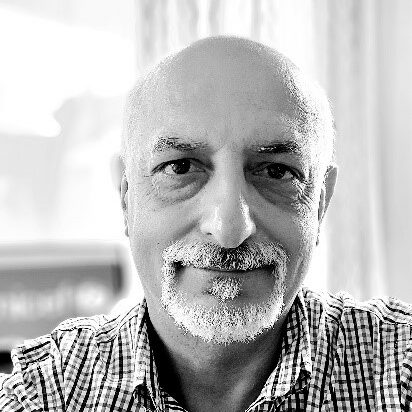
Ahmet
Afşar
UNICEF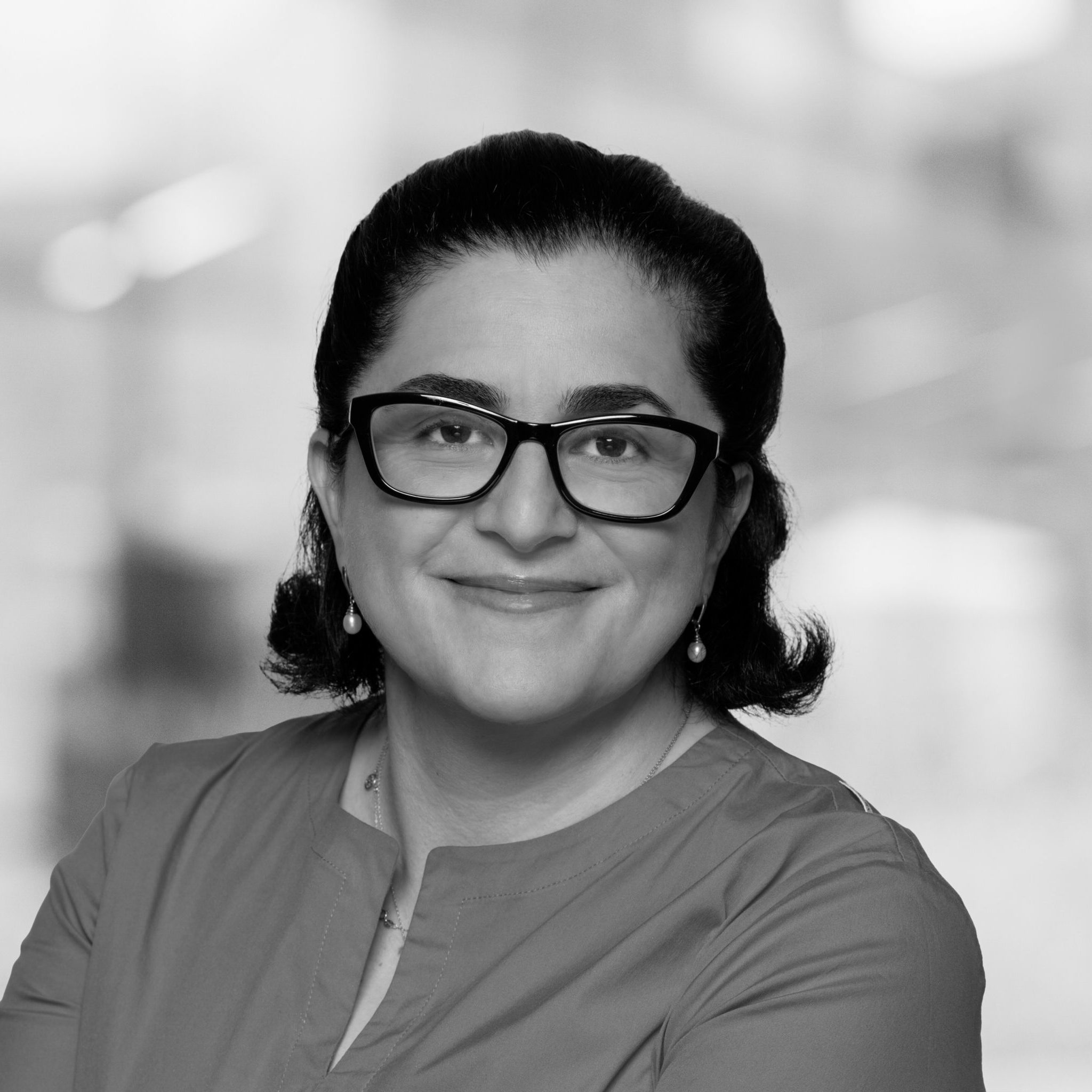
Ana Maria
Guzman
Gates Foundation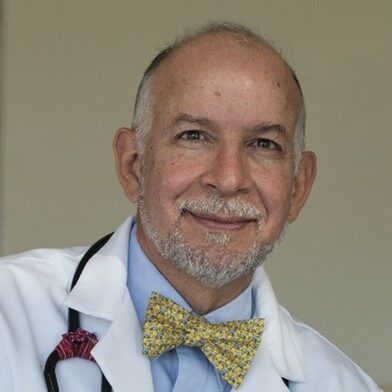
Edwin
Asturias
University of ColoradoSchool of Medicine
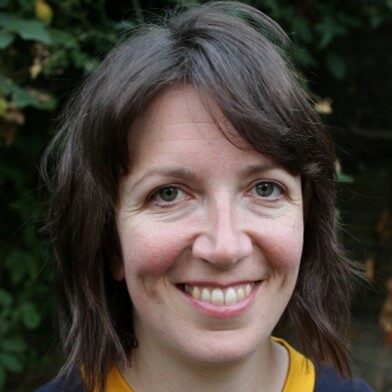
Isobel
Blake
Imperial CollegeLondon
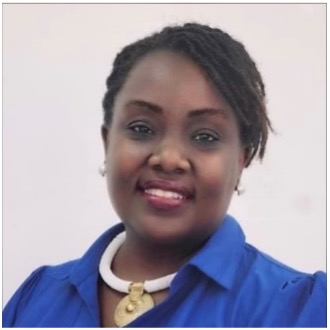
Fiona
Braka
WHO Ghana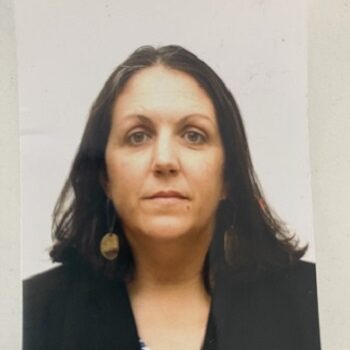
Andrea
Thompson
Gates Foundation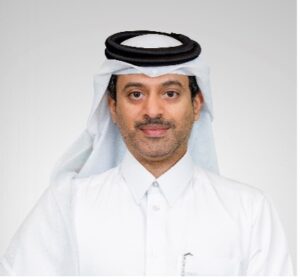
Hamad
Eid Al Romaihi
Supreme Council of Health, Qatar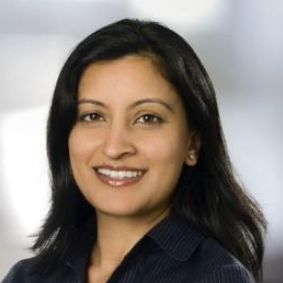
Suchita
Guntakatta
Gates Foundation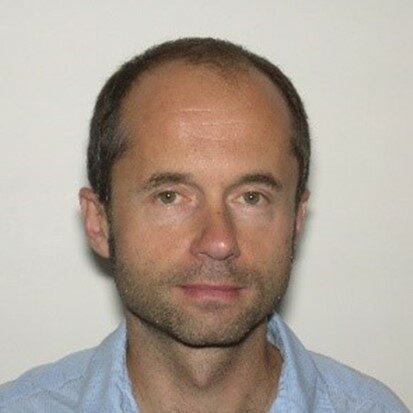
Ondrej
Mach
WHO
Ziad
A. Memish
Alfaisal University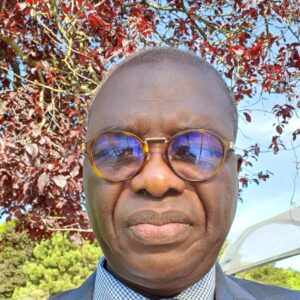
Modjirom
Ndoutabe
WHO – Republic of Congo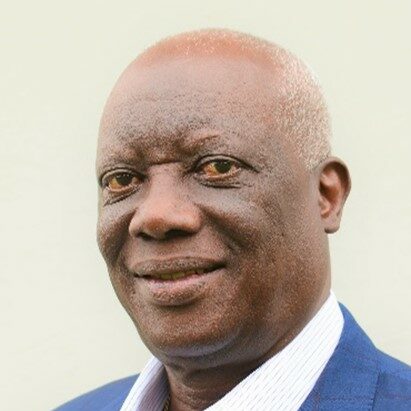
Deo
Nshimirimana
Independent GlobalHealth Consultant
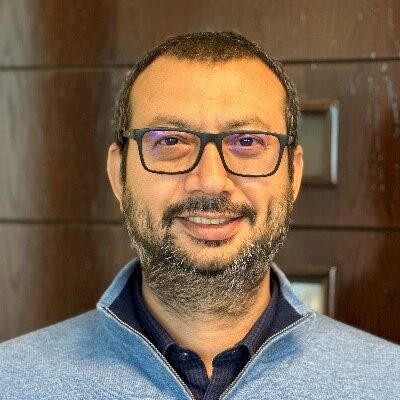
Hemant
Shukla
WHO – Eastern Mediterranean Regional Office
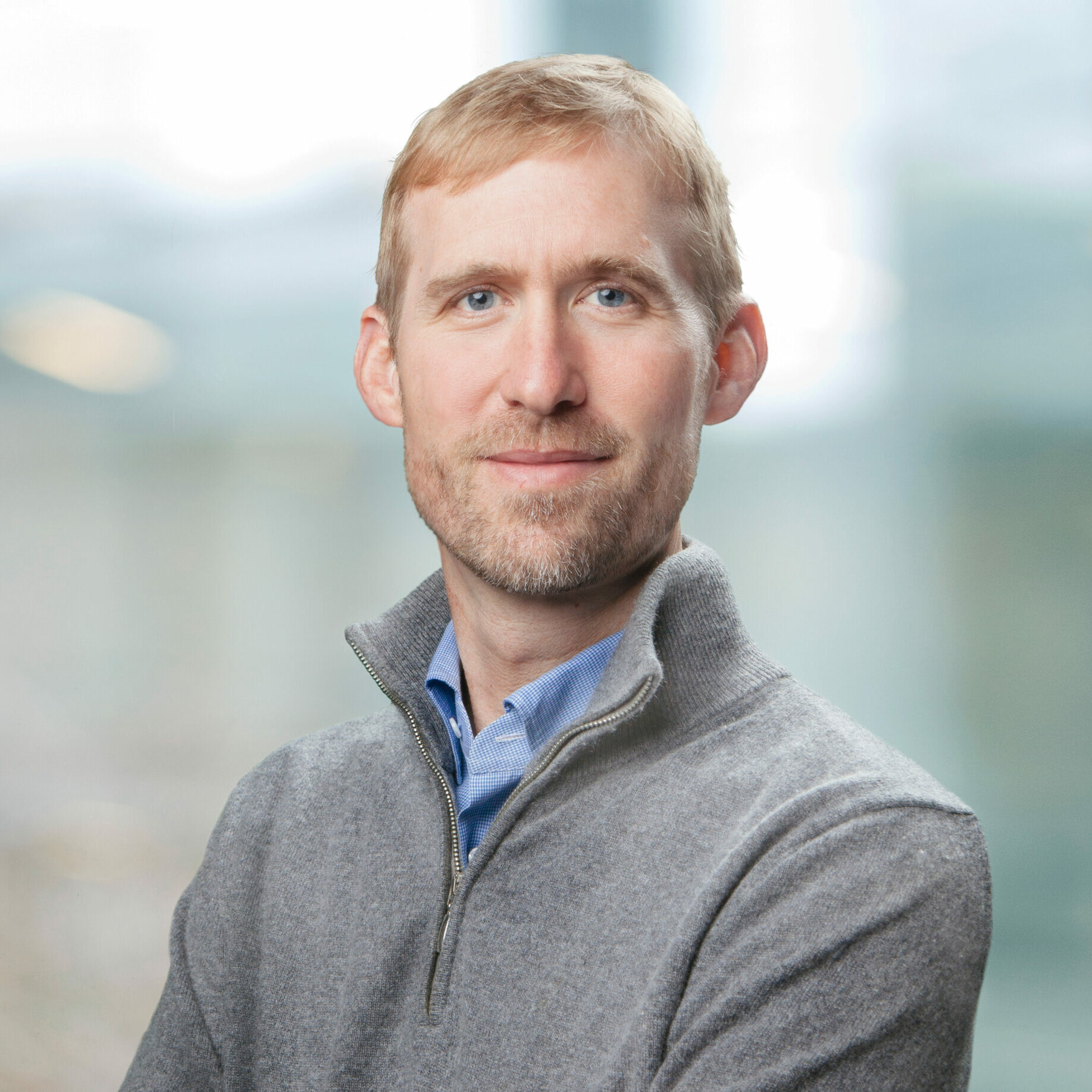
Chris
Wolf
Gates Foundation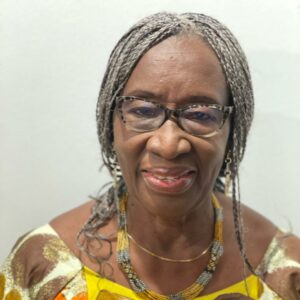
Rose Gana
Fomban Leke
University of Yaounde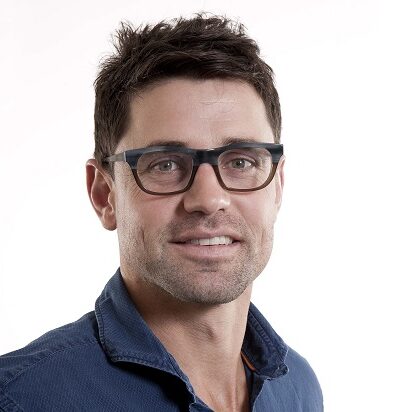
Clancy
Rudeforth
Centre for Humanitarian Dialogue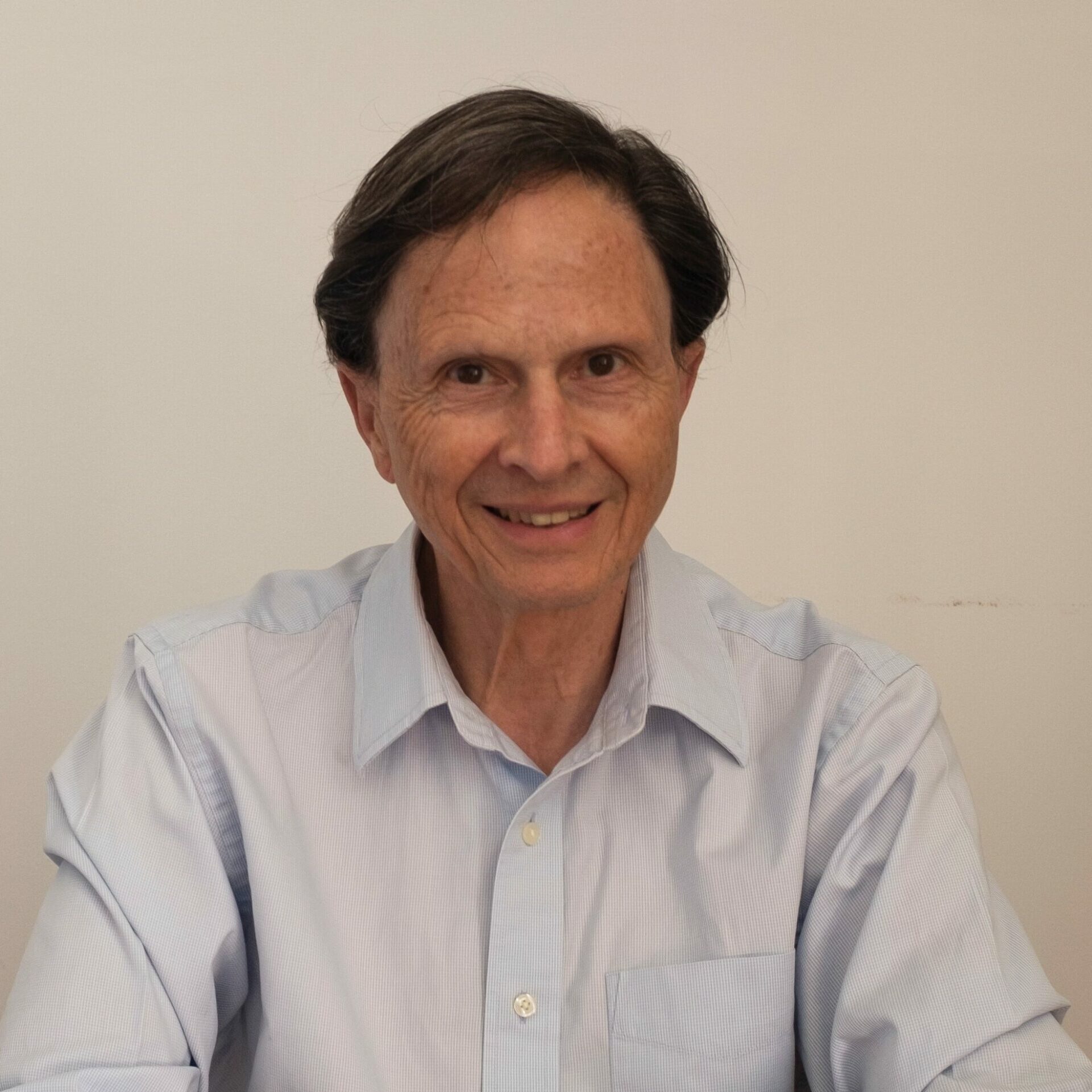
David
Heymann
London School of Hygiene and Tropical medicine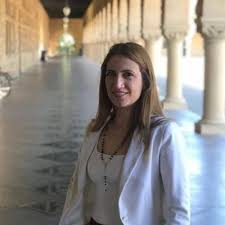
Diana
Maddah
Qatar university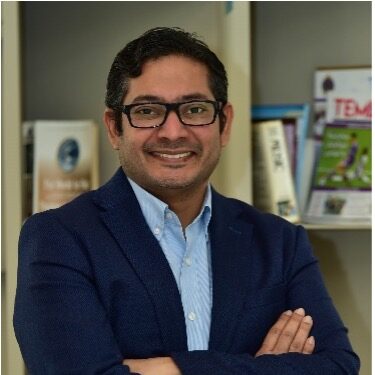
Farhan
Cyprian
Qatar University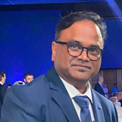
Giridhara
Rathnaiah Babu
Qatar University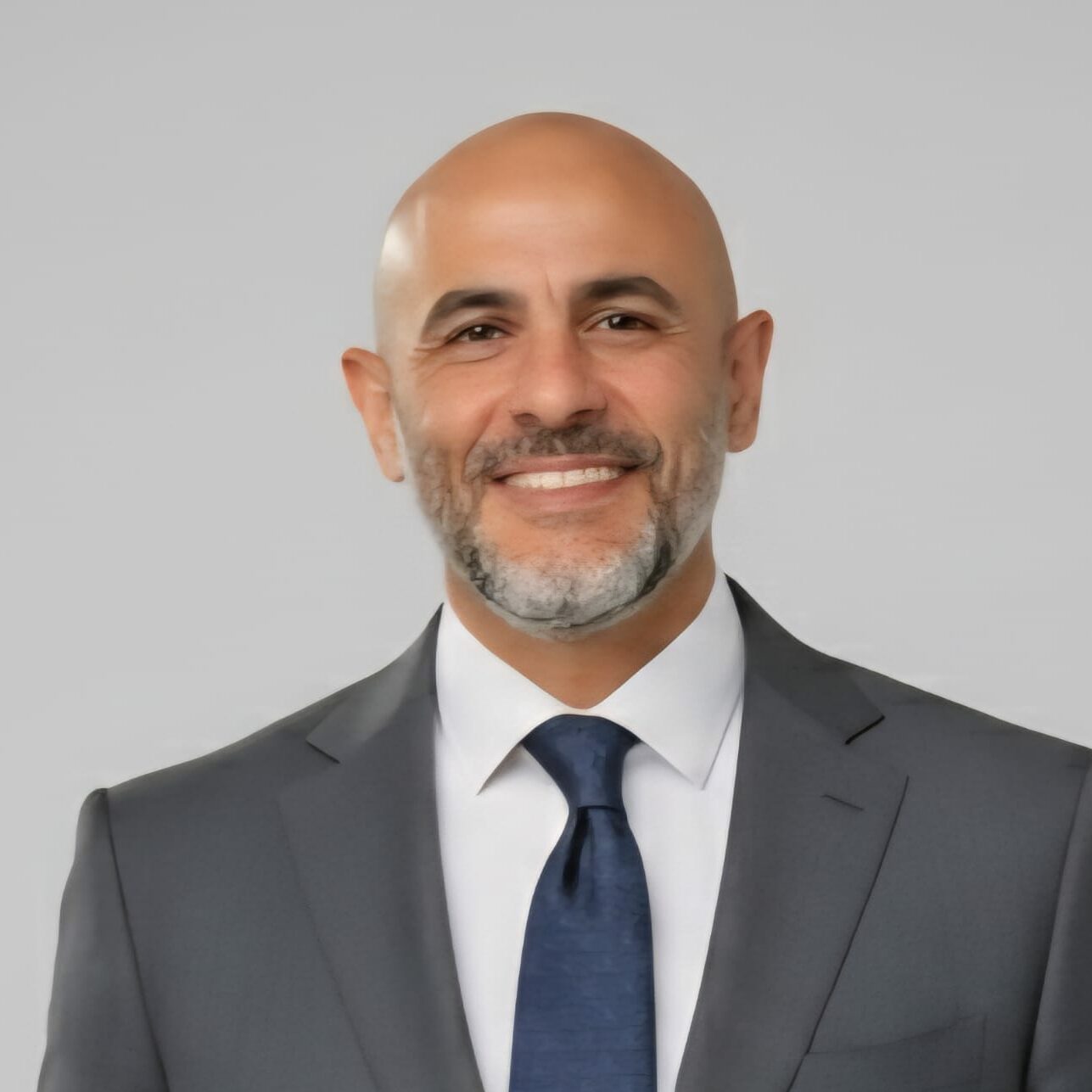
Hadi Mohamad
Yassine
Qatar University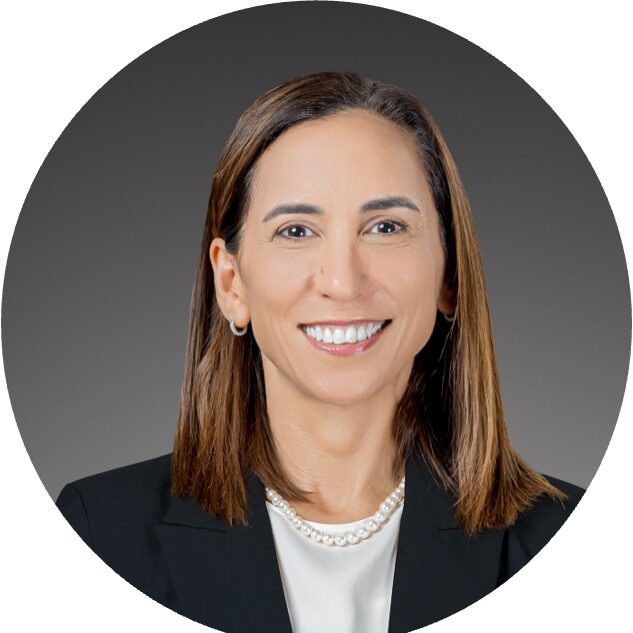
Hanan Abdul
Rahim
Qatar University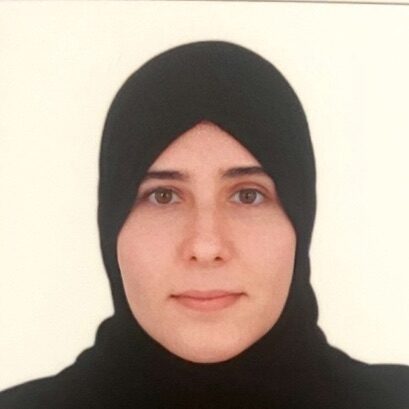
Hebah Atef
Mohammad AlKhatib
Qatar University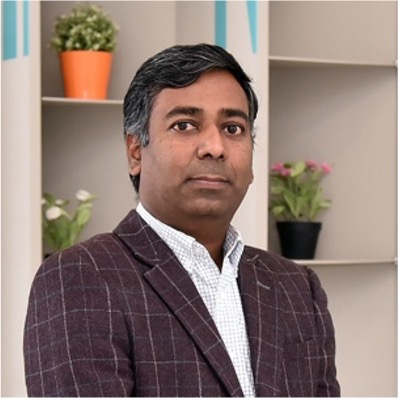
Habib Hasan
Farooqui
Qatar University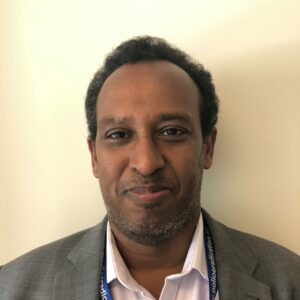
Jamal
Ahmed
World Health Organization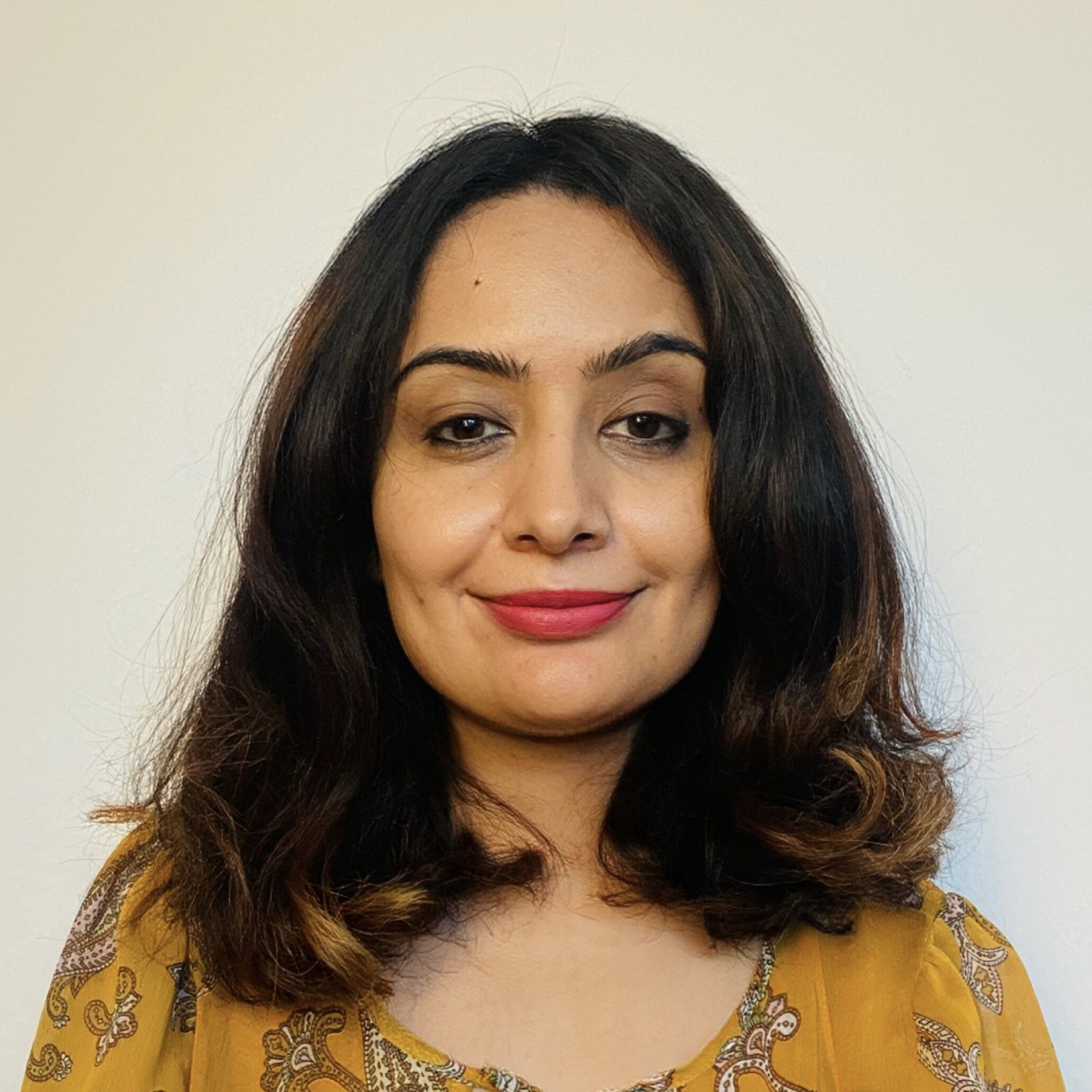
Jawahir
Habib
Unicef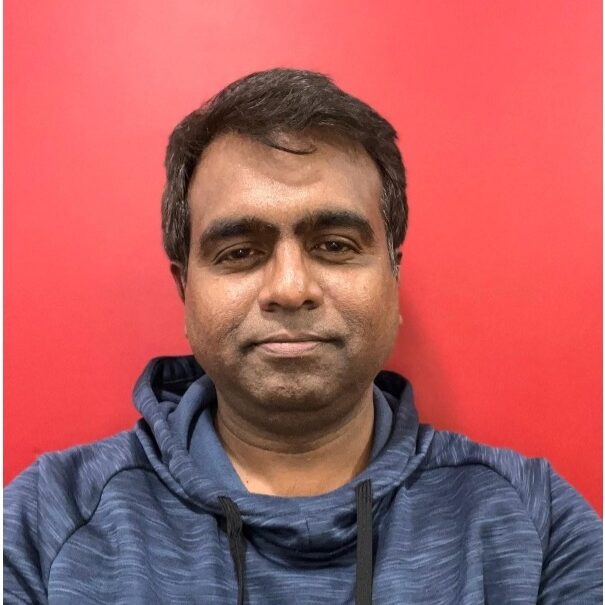
Jeevan Kumar
Makam
UNICEF HQ New York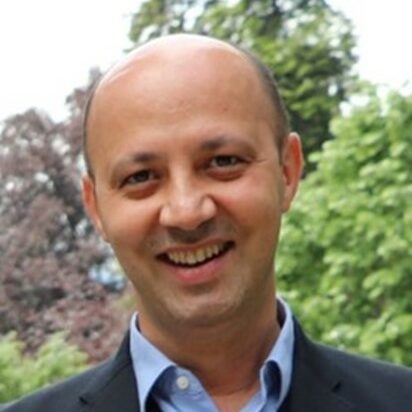
Kamel
Senouci
Director PVAC, University of Geneva
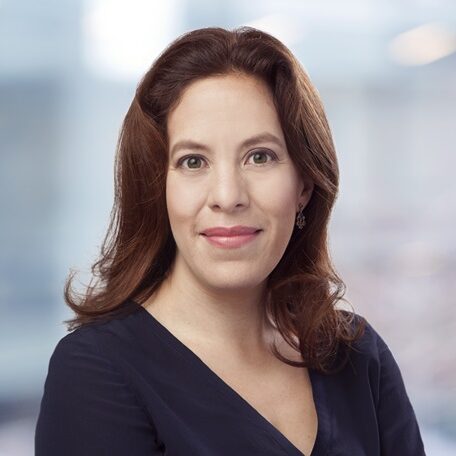
Magdalena
Robert
Gates Foundation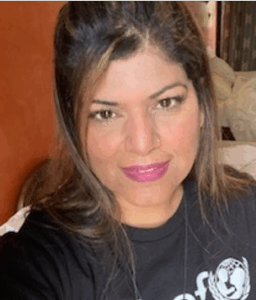
Naureen
Naqvi
UNICEF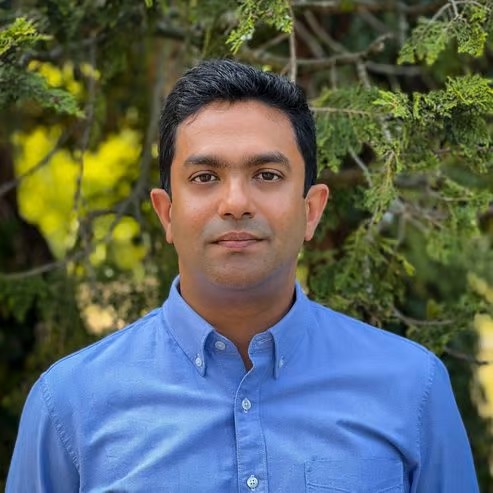
Ouseph
Tharakan
Centre for Humanitarian Dialogue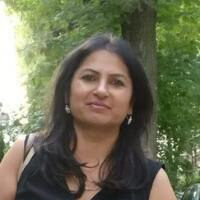
Simmi
Sharma
World Health Organization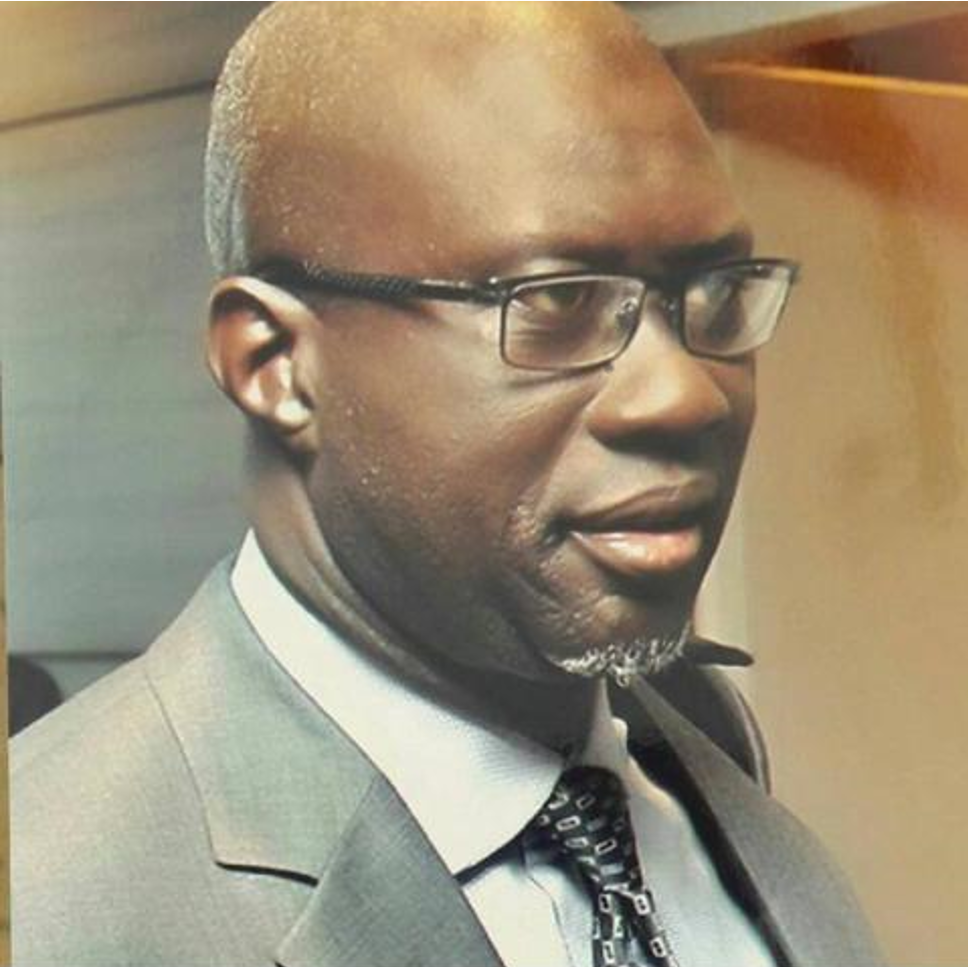
Tandakha Ndiaye
Dieye
Director PVAC – Session in French,Cheikh Anta Diop University
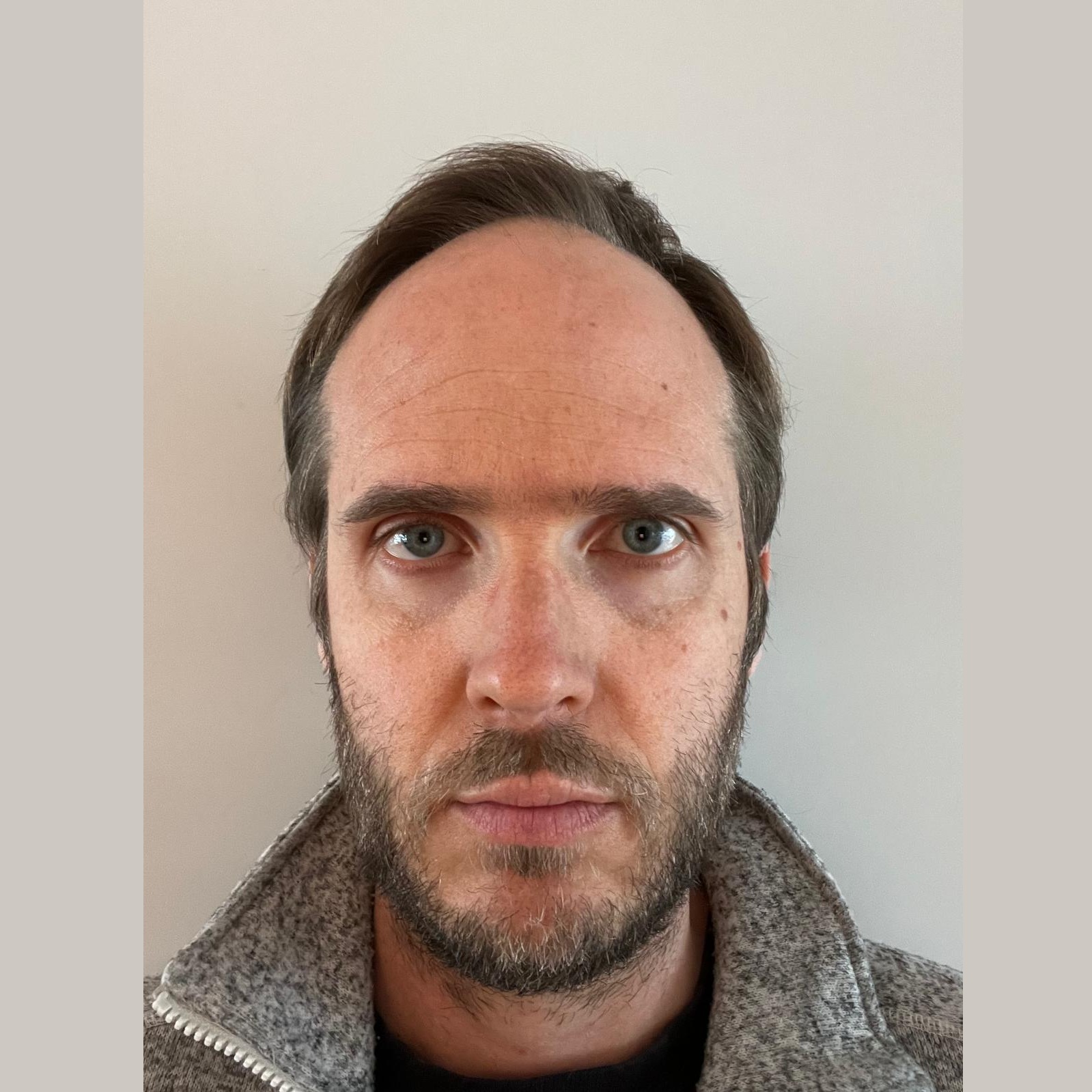
Valère de
Riedmatten
Centre for Humanitarian DialogueAhmet Afşar
Cold chain and logistics specialist covering vaccine management, Polio Outbreak Team
Switzerland
Dr. Ahmet Afşar is a public health expert specializing in vaccine and pharmaceutical supply chain management with more than three decades of working experience in health logistics, M&E, and capacity building.
He started working at provincial and national levels in the Turkish Ministry of Health and managed various health programs on maternal health, immunization, and polio eradication.
As an independent consultant, he has supported international organizations such as WHO, UNICEF, and UNFPA on supply chain evaluation and improvement in numerous developing and middle/high-income countries in Europe, Asia, and Africa.
He is the cold chain and logistics specialist covering vaccine management in the UNICEF HQ Polio Outbreak Team.
He started working at provincial and national levels in the Turkish Ministry of Health and managed various health programs on maternal health, immunization, and polio eradication.
As an independent consultant, he has supported international organizations such as WHO, UNICEF, and UNFPA on supply chain evaluation and improvement in numerous developing and middle/high-income countries in Europe, Asia, and Africa.
He is the cold chain and logistics specialist covering vaccine management in the UNICEF HQ Polio Outbreak Team.
Ana Maria Guzman
Senior Polio Officer
USA
Dr. Ana Maria Guzman is one of the Bill & Melinda Gates Foundation’s Senior Polio Officer in Afghanistan. She joined the foundation in January 2022 from the humanitarian sector, where she served as the health coordinator with the ICRC for Somalia, Ukraine, and Central America. Before that, she was the health coordinator with MSF for Sierra Leone, Liberia, and South Sudan.
Edwin Asturias
Professor of Pediatrics and Epidemiology
USA
Dr. Edwin Asturias is a pediatric infectious disease specialist and professor at the University of Colorado Anschutz Medical Campus, where he is also the Director of Latin American Projects at the Center for Global Health. He holds the Jules Amer chair in community pediatrics. He earned his medical degree from San Carlos University in Guatemala in 1989 and completed his pediatric residency at the University of Colorado in 1995. He further specialized in pediatric infectious diseases at Johns Hopkins School of Medicine. His career has been marked by significant contributions to the study and control of infectious diseases thru vaccines. Dr. Asturias has conducted numerous epidemiological studies to evaluate the efficacy and safety of vaccines against poliomyelitis, especially leading the initial studies on the combined use of bOPV-IPV that provided the evidence for the polio switch in resource-poor countries. Dr. Asturias has served on the Guatemalan National Committee for Immunization Practices and the Poliovirus Contention Commission, the World Health Organization Global Advisory Committee on Vaccine Safety, and currently a voting member to the Advisory Committee of Immunization Practices in the United States of America. He has also served as part of the Scientific Committee and helps coordinate and evaluate the Advance Vaccinology Course of the University of Geneva for the past 20 years.
Dr. Asturias continues to play a vital role in advancing our understanding of infectious diseases and improving vaccine policies to protect vulnerable populations worldwide.
Dr. Asturias continues to play a vital role in advancing our understanding of infectious diseases and improving vaccine policies to protect vulnerable populations worldwide.
Isobel Blake
Senior Lecturer
United Kingdom
Isobel is an infectious disease epidemiologist and a Senior Lecturer at Imperial College London. She works in the MRC Centre for Global Infectious Disease Analysis, School of Public Health and leads a research group conducting polio analysis and modelling, who are a collaborating partner of WHO. Her research focuses on assessing vaccine effectiveness and population immunity from both oral and inactivated polio vaccines, quantifying the risk of poliovirus spatial spread, estimating the risk of emergence of vaccine-derived polioviruses and quantifying drivers of timely surveillance. Her research uses both mathematical and statistical methods to analyse polio surveillance and vaccination data, with a particular focus on identifying spatial heterogeneities. She has published in over 40 peer-reviewed medical journals (including New England Journal of Medicine, Lancet Infectious Diseases and PLOS Medicine), and her research is aimed at having direct programmatic relevance to GPEI whereby she is a member of several Global Polio Eradication Initiative Global Program Support groups.
Isobel obtained her PhD in Infectious Disease Epidemiology at Imperial College London, modelling the neglected tropical disease trachoma. In addition to working on polio over the last ten years she was also part of the WHO Ebola Response Team, who provided real-time epidemiological analyses during the West African Ebola outbreak 2013-2015, and she is part of a collaboration with icddrb and University of Virginia evaluating the use of sewage surveillance for multiple infectious diseases for public health impact.
Isobel obtained her PhD in Infectious Disease Epidemiology at Imperial College London, modelling the neglected tropical disease trachoma. In addition to working on polio over the last ten years she was also part of the WHO Ebola Response Team, who provided real-time epidemiological analyses during the West African Ebola outbreak 2013-2015, and she is part of a collaboration with icddrb and University of Virginia evaluating the use of sewage surveillance for multiple infectious diseases for public health impact.
Fiona Braka
Country Representative to Ghana
Ghana
Dr Fiona Braka is a Public Health expert from Uganda with over two decades of progressive experience in disease prevention and control, public health emergency management, strategic leadership and coordination.
Prior to her appointment as WHO Representative to Ghana, she served in different capacities at national and international level with the World Health Organization in Nigeria, Ethiopia and Uganda, where she led large and diverse teams to advance primary health care and health security. She most recently served as the Coordinator of Emergency Response Operations at the World Health Organization Regional Office for Africa (AFRO) based in Brazzaville, Congo for four years. At AFRO, her role entailed leadership of response operations to acute and protracted health emergencies including disease outbreaks and humanitarian crises across 47 countries of the AFRO region; and coordination of support to member states to strengthen their local capacities for health security.
Dr Braka led the WHO effort to eradicate wild polio virus in Nigeria, which led to the certification of the African region as wild polio virus free in 2020. She has supported countries in sub–Saharan Africa particularly Nigeria, Ethiopia and Uganda where she served as Immunization Team Lead, to strengthen their national vaccination programs while expanding access to broader primary health services in advancement of Universal health coverage and health-related SDGs.
Dr Braka has published widely in peer-review journals and continues to strive to contribute to advancement of scientific knowledge and evidence through different platforms. She holds a Medical Degree from Makerere University in Kampala, Uganda and a Master of Public Health Degree from the Johns Hopkins Bloomberg School of Public Health in Maryland, USA.
Prior to her appointment as WHO Representative to Ghana, she served in different capacities at national and international level with the World Health Organization in Nigeria, Ethiopia and Uganda, where she led large and diverse teams to advance primary health care and health security. She most recently served as the Coordinator of Emergency Response Operations at the World Health Organization Regional Office for Africa (AFRO) based in Brazzaville, Congo for four years. At AFRO, her role entailed leadership of response operations to acute and protracted health emergencies including disease outbreaks and humanitarian crises across 47 countries of the AFRO region; and coordination of support to member states to strengthen their local capacities for health security.
Dr Braka led the WHO effort to eradicate wild polio virus in Nigeria, which led to the certification of the African region as wild polio virus free in 2020. She has supported countries in sub–Saharan Africa particularly Nigeria, Ethiopia and Uganda where she served as Immunization Team Lead, to strengthen their national vaccination programs while expanding access to broader primary health services in advancement of Universal health coverage and health-related SDGs.
Dr Braka has published widely in peer-review journals and continues to strive to contribute to advancement of scientific knowledge and evidence through different platforms. She holds a Medical Degree from Makerere University in Kampala, Uganda and a Master of Public Health Degree from the Johns Hopkins Bloomberg School of Public Health in Maryland, USA.
Andrea Thompson
Senior Program Officer for Polio Outbreaks
Canada
Andrea has been working in polio eradication since 2007 starting in Nigeria. She has worked in India during the last years of eradication and for the last 10 years has been working across various Francophone and Lusaphone African countries for WHO and Gates Foundation to support polio eradication efforts. Andrea is originally from Canada and enjoys spending her free time biking and swimming in any body of water.
Hamad Eid Al Romaihi
Consultant, Community Medicine and Head of Surveillance and Outbreak Control, Supreme Council of Health, Qatar
Qatar
Dr. Hamad Eid Al Romaihi is a Senior Consultant in Community Medicine and Director of the Health Protection and Communicable Disease Control Department at Qatar’s Ministry of Public Health. He earned his medical degree from Arabian Gulf University’s Medical College in Bahrain, completed his Arab Board training in Community Medicine in Qatar, and holds a Fellowship in Travel Medicine from the Royal College of Physicians and Surgeons of Glasgow.
He oversees Qatar’s National Vaccination Program, and the implementation of immunization initiatives under the National Health Strategy (NHS), with a focus on expanding vaccine coverage and improving efforts against vaccine-preventable diseases.
He serves as a non-core member of Qatar’s National Immunization Technical Advisory Group (NITAG) and contributes to the National Certification Committee (NCC) for Polio, by providing data on the burden of vaccine-preventable diseases, including acute flaccid paralysis (AFP).
Dr. Al Romaihi regularly attends global and regional forums on polio eradication, such as the WHO’s Regional Subcommittee for Polio Eradication and Outbreaks, contributing to the advancement of vaccination strategies and public health policies to meet the polio eradication targets.
He oversees Qatar’s National Vaccination Program, and the implementation of immunization initiatives under the National Health Strategy (NHS), with a focus on expanding vaccine coverage and improving efforts against vaccine-preventable diseases.
He serves as a non-core member of Qatar’s National Immunization Technical Advisory Group (NITAG) and contributes to the National Certification Committee (NCC) for Polio, by providing data on the burden of vaccine-preventable diseases, including acute flaccid paralysis (AFP).
Dr. Al Romaihi regularly attends global and regional forums on polio eradication, such as the WHO’s Regional Subcommittee for Polio Eradication and Outbreaks, contributing to the advancement of vaccination strategies and public health policies to meet the polio eradication targets.
Suchita Guntakatta
Deputy Director, Global Development Polio team
USA
Suchita Guntakatta is the Deputy Director, for the Global Development Polio team at the Bill & Melinda Gates Foundation. In this capacity, she is responsible for leading the strategic, financial, partners management, risk and problem resolution, and operational activities and processes for the team. A significant part of the role is to be the interface internally with the other divisions and operations groups across the foundation as well as externally as a foundation representative within the Global Polio Eradication Initiative (GPEI) partnership.
Suchita brings over 15 years of corporate and management consulting experience in strategy planning, operations, and portfolio management. Prior to joining the foundation, Suchita was Vice President, Corporate Operations Strategy & Planning with Discovery Communications, Inc. During her time at Discovery Communications, she worked on assisting and guiding the process to translate corporate strategy into day-to-day operations.
Prior to Discovery Communications, she was at Accenture for 10 years as a management consultant working with technology and media companies. During her time with Accenture, she worked on organizational performance and restructuring projects for her client. She also has experience with process design, re-engineering and improvement efforts that included change management activities to implement the change effectively.
Suchita works out of the Gates Foundation Washington, D.C. office, been with the foundation since March 2009 and is a graduate of the University of Maryland. She has been involved within her community through the years in volunteer programs teaching low-income adults go back for their high school diplomas, working with women’s groups providing educational support and microfinance loans to women survivors of war and poverty.
Suchita brings over 15 years of corporate and management consulting experience in strategy planning, operations, and portfolio management. Prior to joining the foundation, Suchita was Vice President, Corporate Operations Strategy & Planning with Discovery Communications, Inc. During her time at Discovery Communications, she worked on assisting and guiding the process to translate corporate strategy into day-to-day operations.
Prior to Discovery Communications, she was at Accenture for 10 years as a management consultant working with technology and media companies. During her time with Accenture, she worked on organizational performance and restructuring projects for her client. She also has experience with process design, re-engineering and improvement efforts that included change management activities to implement the change effectively.
Suchita works out of the Gates Foundation Washington, D.C. office, been with the foundation since March 2009 and is a graduate of the University of Maryland. She has been involved within her community through the years in volunteer programs teaching low-income adults go back for their high school diplomas, working with women’s groups providing educational support and microfinance loans to women survivors of war and poverty.
Ondrej Mach
Team Leader, Research and Product Development Team, Polio Eradication Department, WHO
Switzerland
Dr. Ondrej Mach is a Team Leader of the Research and Product Development Team within the Polio Eradication Department of the World Health Organization (WHO) based in Geneva. In his capacity he is responsible to manage polio related studies and clinical trials and to support polio eradication efforts in the high priority countries.
Prior to his engagement at the WHO, Dr Mach worked for the Centers of Disease Control and Prevention in Atlanta (CDC) as an epidemiologist; and prior to that he practiced family medicine in various countries such as Bolivia, Burundi or Bosnia and Herzegovina.
Dr. Mach graduated from the medical school in Prague and obtained his Public Health Degree at the Harvard School of Public Health in Boston. He also graduated from the Epidemic Intelligence Service fellowship at the CDC.
Prior to his engagement at the WHO, Dr Mach worked for the Centers of Disease Control and Prevention in Atlanta (CDC) as an epidemiologist; and prior to that he practiced family medicine in various countries such as Bolivia, Burundi or Bosnia and Herzegovina.
Dr. Mach graduated from the medical school in Prague and obtained his Public Health Degree at the Harvard School of Public Health in Boston. He also graduated from the Epidemic Intelligence Service fellowship at the CDC.
Ziad A. Memish
Advisor, King Salman Humanitarian Aid & Relief Center
Professor, College of Medicine
Professor, College of Medicine
Saudi Arabia
Ziad Memish is currently an Advisor to the Supervisor General of King Salman Humanitarian Aid & Relief Center (KSrelief) for Medical & Humanitarian Research. Professor of infectious diseases at the College of Medicine in Alfaisal University, Riyadh, Saudi Arabia.
He obtained his MD from the University of Ottawa, Ottawa, Canada in 1987 and is Board certified by the American Board of Internal Medicine, the American Board of Infectious Diseases as well as a Fellow of the Royal College of Physicians (Canada, Edinburgh, and London) and the American College of Physicians. He received the King Abdulaziz Medal from the first degree in 2007, the highest national award for his achievements in Infectious diseases and infection control in KSA also received Minister of Health Award for leadership in research for over 10 years in 2019. A Highly Cited Researchers” for exceptional research performance by production of multiple highly cited papers (those that rank in the top 1% by citation in the field) by the Web of Science (Clarivate analytics) 2018, 2019, 2020, 2021, 2022, 2023, 2024. Awarded the “the Health Research Excellence: Lifetime achievement award” by Research Development & Innovation Authority Oct 2024. He is the EIC of 4 medical journals, presented extensively nationally and internationally and has published more than 900 papers and book chapters.
He obtained his MD from the University of Ottawa, Ottawa, Canada in 1987 and is Board certified by the American Board of Internal Medicine, the American Board of Infectious Diseases as well as a Fellow of the Royal College of Physicians (Canada, Edinburgh, and London) and the American College of Physicians. He received the King Abdulaziz Medal from the first degree in 2007, the highest national award for his achievements in Infectious diseases and infection control in KSA also received Minister of Health Award for leadership in research for over 10 years in 2019. A Highly Cited Researchers” for exceptional research performance by production of multiple highly cited papers (those that rank in the top 1% by citation in the field) by the Web of Science (Clarivate analytics) 2018, 2019, 2020, 2021, 2022, 2023, 2024. Awarded the “the Health Research Excellence: Lifetime achievement award” by Research Development & Innovation Authority Oct 2024. He is the EIC of 4 medical journals, presented extensively nationally and internationally and has published more than 900 papers and book chapters.
Modjirom Ndoutabe
Team Lead for Polio Outbreaks at the Regional Office AFRO
AFRO RRT Coordinator
AFRO RRT Coordinator
Brazzaville- Republic of Congo
I am Ndoutabe Modjirom. Chadian. Medical Officer since 1993. Graduated from the Abidjan Faculty of Medicine (University National of Cote d’Ivoire). I was Resident for Public Health and Community Medicine at the Côte d’Ivoire Faculty of Medicine (Interne des Hôpitaux d’Abidjan) and Lecturer rank B for Public Health and Community Medicinein this Faculty for 5 years (Assistant Chef de Clinique). I was the Head of Immunization Center at the Public National Institute of Hygiene of Cote d’Ivoire for 5 years simultaneously with my position as Lecturer rank B.
In 1999, I was involved like Facilitators for the first course of Field Epidemiology organized by AMP (Agence de la Medecine Preventive) in Dakar at CESAG. I did it for three cohorts consecutive.
In 2000 I joined WHO like International Consultant for Niger to support this country to implement polio activities (surveillance, campaigns, …) against the Wild Poliovirus Type 1.
In 2003, I have been appointed by WHO like Vaccine Preventable Diseases Focal Person in Mali. I spent 9 years at this position.
In 2011 I was appointed like Polio Focal Person at the Intercountry Support Team (IST) West Africa. At this position I managed 17 countries and contributed to stop the WPV1 circulation in West Africa Countries except Nigeria.
In February 2018, I was appointed like GPEI Coordinator for DRC. It was the first experience of the local coordination for Polio Outbreak by all the partners in one country. The experience of this partnership led to the appointments of GPEI Coordinators for all Polio outbreaks countries.
In September 2019, I was appointed like the Rapid Response Team Coordinator for Polio Outbreaks in AFRO till now. I assumed the interim of PEP Coordinator for AFRO (WHO) from February to November 2022 and from March 2025 till now.
In 1999, I was involved like Facilitators for the first course of Field Epidemiology organized by AMP (Agence de la Medecine Preventive) in Dakar at CESAG. I did it for three cohorts consecutive.
In 2000 I joined WHO like International Consultant for Niger to support this country to implement polio activities (surveillance, campaigns, …) against the Wild Poliovirus Type 1.
In 2003, I have been appointed by WHO like Vaccine Preventable Diseases Focal Person in Mali. I spent 9 years at this position.
In 2011 I was appointed like Polio Focal Person at the Intercountry Support Team (IST) West Africa. At this position I managed 17 countries and contributed to stop the WPV1 circulation in West Africa Countries except Nigeria.
In February 2018, I was appointed like GPEI Coordinator for DRC. It was the first experience of the local coordination for Polio Outbreak by all the partners in one country. The experience of this partnership led to the appointments of GPEI Coordinators for all Polio outbreaks countries.
In September 2019, I was appointed like the Rapid Response Team Coordinator for Polio Outbreaks in AFRO till now. I assumed the interim of PEP Coordinator for AFRO (WHO) from February to November 2022 and from March 2025 till now.
Deo Nshimirimana
Independent Global Health Consultant
Burundi
Dr. Deo Nshimirimana is a global health consultant who specializes in health systems’ strengthening with a view to sustainably improving country health system performance. He also specializes in immunization in emergency settings and is the current Chair of the World Health Organization (WHO) Emergency Preparedness and Response Technical Advisory Group for the African Region.
Dr. Nshimirimana retired from the WHO in 2018 as the WHO Representative in Senegal. Prior to serving in Senegal, he was the Director of the Emergencies, Immunization & Vaccine Development Cluster at the WHO Regional Office for Africa.
After retirement, Dr. Nshimirimana served as acting WHO Representative for 11 months in the DRCongo during the Ebola outbreak in North Kivu province and Ituri. Concurrently, he dealt with a massive measles outbreak (6,000 deaths); multiple cVDPV type 2 outbreaks in different provinces in addition to a cholera outbreak in Eastern DRCongo. Dr. Nshimirimana previously played an active role in Universal Health Coverage scoping missions in DRCongo and Mauritania and currently is a member of the WHO/Africa Regional Immunization Technical Advisory Group.
Dr. Nshimirimana retired from the WHO in 2018 as the WHO Representative in Senegal. Prior to serving in Senegal, he was the Director of the Emergencies, Immunization & Vaccine Development Cluster at the WHO Regional Office for Africa.
After retirement, Dr. Nshimirimana served as acting WHO Representative for 11 months in the DRCongo during the Ebola outbreak in North Kivu province and Ituri. Concurrently, he dealt with a massive measles outbreak (6,000 deaths); multiple cVDPV type 2 outbreaks in different provinces in addition to a cholera outbreak in Eastern DRCongo. Dr. Nshimirimana previously played an active role in Universal Health Coverage scoping missions in DRCongo and Mauritania and currently is a member of the WHO/Africa Regional Immunization Technical Advisory Group.
Hemant Shukla
Coordinator – Surveillance, Laboratory and Data, Polio Eradication, Eastern Mediterranean Regional Office
Jordan
Dr Shukla is currently serving as the Coordinator Surveillance, Laboratory and Data in polio eradication programme at the Eastern Mediterranean Regional Office of World Health Organization. Prior to taking the current role, Dr Shukla led Country Support team for polio at the Eastern Mediterranean Regional Office for more than three years, leading polio outbreak response activities in the region.
Dr Shukla led polio eradication efforts of Afghanistan as the Team Leader for Polio at World Health Organization office for Afghanistan through July 2019. Prior to that appointment, Dr Shukla served at WHO Headquarters, Geneva from 2013 to 2015, supporting Horn of Africa countries in polio outbreak response.
Dr Shukla previously led WHO’s polio eradication and immunization strengthening efforts in Bihar state of India, managing extensive network of more than 1000 field staff.
Dr Shukla completed his M.D. from All India Institute of Medical Sciences, Delhi, India, specializing in Community Medicine and obtained his MBBS degree from Bangalore Medical College & Research Institute, Bangalore University in India.
Dr Shukla led polio eradication efforts of Afghanistan as the Team Leader for Polio at World Health Organization office for Afghanistan through July 2019. Prior to that appointment, Dr Shukla served at WHO Headquarters, Geneva from 2013 to 2015, supporting Horn of Africa countries in polio outbreak response.
Dr Shukla previously led WHO’s polio eradication and immunization strengthening efforts in Bihar state of India, managing extensive network of more than 1000 field staff.
Dr Shukla completed his M.D. from All India Institute of Medical Sciences, Delhi, India, specializing in Community Medicine and obtained his MBBS degree from Bangalore Medical College & Research Institute, Bangalore University in India.
Chris Wolf
Deputy Director, Immunization Platforms
USA
Chris Wolff leads a team that focuses on strengthening immunization delivery platforms to reach more communities with vaccines and other vital services.
Since joining the Gates Foundation in 2014, Chris has established and led multiple teams focused on delivery innovations ranging from electronic immunization registries and new cold chain technologies to new delivery partnerships with the World Bank and other global health funds.
Previously, Chris worked at the World Health Organization (WHO), primarily on immunization and polio eradication. His roles included leading outbreak response, overseeing one of WHO’s largest global disease surveillance and data networks, providing technical advice to dozens of countries on strategies to complete eradication, and working on global policy development related to vaccine strategies. He played an active role in interrupting poliovirus transmission in India, Nigeria, and multiple outbreak countries. He started his time at WHO in the Western Pacific Regional Office in Manila, Philippines, and then moved to WHO Headquarters in Geneva, Switzerland.
Before joining WHO, Chris worked as a fellow at the U.S. Centers for Disease Control and Prevention on tuberculosis monitoring and evaluation systems in Central Asia. He also spent some years teaching biology in the Czech Republic and doing research with Habitat for Humanity on the relationship between improved housing and health.
Chris has a B.S. in biology from Wake Forest University and an MPH from the Rollins School of Public Health at Emory University.
Since joining the Gates Foundation in 2014, Chris has established and led multiple teams focused on delivery innovations ranging from electronic immunization registries and new cold chain technologies to new delivery partnerships with the World Bank and other global health funds.
Previously, Chris worked at the World Health Organization (WHO), primarily on immunization and polio eradication. His roles included leading outbreak response, overseeing one of WHO’s largest global disease surveillance and data networks, providing technical advice to dozens of countries on strategies to complete eradication, and working on global policy development related to vaccine strategies. He played an active role in interrupting poliovirus transmission in India, Nigeria, and multiple outbreak countries. He started his time at WHO in the Western Pacific Regional Office in Manila, Philippines, and then moved to WHO Headquarters in Geneva, Switzerland.
Before joining WHO, Chris worked as a fellow at the U.S. Centers for Disease Control and Prevention on tuberculosis monitoring and evaluation systems in Central Asia. He also spent some years teaching biology in the Czech Republic and doing research with Habitat for Humanity on the relationship between improved housing and health.
Chris has a B.S. in biology from Wake Forest University and an MPH from the Rollins School of Public Health at Emory University.
Rose Ganan Fomban Leke
Emeritus Professor
Cameroon
Emeritus Professor Rose Gana Fomban Leke, Professor of Immunology/ Parasitology, Fellow of the Cameroon Academy of Sciences, The African Academy of Science, The World Academy of Science. Until March 2013, Head of Department at the Faculty of Medicine and Biomedical Sciences, University of Yaounde 1, Director of the Biotechnology Centre. Chair of the Board of Directors of the National Medical Research Institute, IMPM, Vice President of the Scientific Committee of Cameroon First Lady’s Research Centre (CIRCB). The 2014 Aggrey-Fraser-Guggisberg Memorial Lecturer at the University of Ghana, awarded Doctor Honoris Causa (DSc).
In 2011, received the African Union Kwame Nkrumah Scientific Award for Women. Elected International Honorary Fellow of the American Society of Tropical Medicine and Hygiene ASTMH in 2015. Has been member of the Canada Gairdner Foundation Global Health Award Advisory Committee. Elected one of nine women as HEROINE OF HEALTH 2018
In 2018, crowned by the Cameroon Medical Council as QUEEN MOTHER OF THE CAMEROONIAN MEDICAL COMMUNITY
FORBES AFRICA April/May 2021 Edition named her as ICON #24.
December 2022 award: Achievement in Global Health Leadership, by the AU and Africa CDC
February 2023, appointed Chair of the Independent Review Committee (IRC) of the GAVI Alliance
Received October 14 in Berlin the 2023 Virchow Prize for Global Health
Received the L OREAL UNESCO INTERNATIONAL PRIZE FOR WOMEN IN SCIENCE AFRCA AND ARAB WORLD May 2024
Chair of the Multilateral Initiative in Malaria (MIM) Secretariat.
Was President of FAIS and Council member of IUIS for two terms.s
Consultant on many committees for the World Health Organization (WHO): the Malaria Policy Advisory Committee (MPAC), The Malaria Elimination Oversight Committee. Chair of the African Regional Commission for the Certification of the Eradication of Poliomyelitis (ARCC) since 1999, and read the declaration on August 25 2020, to announce Africa free from indigenous Wild Polio Virus. One of the six members of the Global Certification Commission (GCC), the member for the African Region.
Been a member and Chair of the African AACHR and the Global ACHR, a Board member of the Global Forum for Health Research, and since 2013 serves on the WHO Emergency Committee for Polio eradication.
Has served as Vice-Chair of first Technical Evaluation Reference group (TERG) of the Global Fund.
Has been very effective in training the next generation of scientists, MDs, MSc, PhD, national and international, and continues to do so through the HIGHER WOMEN CONSORTIUM CAMEROON, a holistic mentoring program, one of her very successful initiatives.
In 2011, received the African Union Kwame Nkrumah Scientific Award for Women. Elected International Honorary Fellow of the American Society of Tropical Medicine and Hygiene ASTMH in 2015. Has been member of the Canada Gairdner Foundation Global Health Award Advisory Committee. Elected one of nine women as HEROINE OF HEALTH 2018
In 2018, crowned by the Cameroon Medical Council as QUEEN MOTHER OF THE CAMEROONIAN MEDICAL COMMUNITY
FORBES AFRICA April/May 2021 Edition named her as ICON #24.
December 2022 award: Achievement in Global Health Leadership, by the AU and Africa CDC
February 2023, appointed Chair of the Independent Review Committee (IRC) of the GAVI Alliance
Received October 14 in Berlin the 2023 Virchow Prize for Global Health
Received the L OREAL UNESCO INTERNATIONAL PRIZE FOR WOMEN IN SCIENCE AFRCA AND ARAB WORLD May 2024
Chair of the Multilateral Initiative in Malaria (MIM) Secretariat.
Was President of FAIS and Council member of IUIS for two terms.s
Consultant on many committees for the World Health Organization (WHO): the Malaria Policy Advisory Committee (MPAC), The Malaria Elimination Oversight Committee. Chair of the African Regional Commission for the Certification of the Eradication of Poliomyelitis (ARCC) since 1999, and read the declaration on August 25 2020, to announce Africa free from indigenous Wild Polio Virus. One of the six members of the Global Certification Commission (GCC), the member for the African Region.
Been a member and Chair of the African AACHR and the Global ACHR, a Board member of the Global Forum for Health Research, and since 2013 serves on the WHO Emergency Committee for Polio eradication.
Has served as Vice-Chair of first Technical Evaluation Reference group (TERG) of the Global Fund.
Has been very effective in training the next generation of scientists, MDs, MSc, PhD, national and international, and continues to do so through the HIGHER WOMEN CONSORTIUM CAMEROON, a holistic mentoring program, one of her very successful initiatives.
Clancy Rudeforth
Co-Director, Humanitarian Mediation
Switzerland
Joined HD in 2015.
Managed humanitarian initiatives in South Asia and the Middle East.
Leads HD’s engagements in relation to Afghanistan.
Professional background in law.
Degrees from Columbia, Sciences Po, and the University of Western Australia.
Managed humanitarian initiatives in South Asia and the Middle East.
Leads HD’s engagements in relation to Afghanistan.
Professional background in law.
Degrees from Columbia, Sciences Po, and the University of Western Australia.
David Heymann
Professor of Infectious Disease Epidemiology
UK
David Heymann is a medical epidemiologist and Professor of Infectious Disease Epidemiology at the London School of Hygiene and Tropical Medicine. From 2009 to 2017 he was chair of the UK Health Protection Agency and then Public Health England, and during this period he also led the Centre on Global Health Security at Chatham House (London). From 1989 to 2009 Heymann held various leadership positions in infectious diseases at WHO, and in 2003 headed the WHO global response to SARS in his role as executive director of communicable diseases. In 1976, after spending two years working in India on smallpox eradication, Heymann was a member of the CDC (Atlanta) team to investigate the first Ebola outbreak in DRC and stayed on in sub-Saharan Africa for 13 years in various field research positions on Ebola, monkeypox, Lassa Fever, malaria and other tropical diseases. Heymann has published over 275 peer reviewed articles and book chapters, is editor of the Control of Communicable Diseases Manual, and is an elected member of the UK Academy of Medical Sciences and the US National Academy of Medicine. In 2009 he was named an Honorary Commander of the Most Excellent Order of the British Empire for services to global health.
Diana Maddah
Assistant professor of Public Health
Qatar
Dr. Diana Maddah is an Assistant Professor of Public Health at Qatar University and a humanitarian health expert with extensive experience in Risk Communication and Community Engagement (RCCE). She serves as a thematic lead for national RCCE strategies at the Collective Service, and has supported the UK Emergency Medical Team (UK EMT) as the RCCE Technical Lead on multiple deployments. Dr. Maddah has led the drafting of national RCCE strategies across Europe, the Middle East, and Africa, bridging academic research and field practice to strengthen preparedness and response through community-centered approaches.
Farhan Cyprian
Associate Professor of Immunology, College of medicine
Qatar
Dr. Farhan Cyprian is a Medical Doctor (MBBS) and Associate Professor of Immunology at the College of Medicine, Qatar University (CMED-QU). He combines clinical training with focused translational research to advance understanding of host–pathogen interactions and immune responses in infectious diseases.
Dr. Cyprian earned his PhD at École Normale Supérieure de Lyon and conducted doctoral work at the Institut Mérieux P4 facility in Lyon, developing expertise in TGF-β–mediated modulation of T cells in transgenic models; his MSc examined the application of transcriptomics to cancer biology. Dr. Cyprian’s research centers on the role of T cell–driven immunity in severe infection—particularly SARS-CoV-2, tuberculosis and oncoviruses—and impact of metabolic disorders on molecular mechanisms that impact disease severity and immune evasion. He has secured several grants and is currently active in a project to develop nanoparticle-based mucosal vaccines for RSV, influenza and SARS-CoV-2, and combines transcriptomic profiling with functional immunology to translate mechanistic discoveries into therapeutic leads. Working with well-characterized clinical cohorts and experimental models, he seeks to move laboratory findings toward clinically relevant interventions. He has authored 60+ peer-reviewed articles with over 2,200 citations, and as a founding faculty member at CMED-QU he continues to build regional research capacity in immune responses to infectious-disease while mentoring the next generation of clinician-scientists.
Dr. Cyprian earned his PhD at École Normale Supérieure de Lyon and conducted doctoral work at the Institut Mérieux P4 facility in Lyon, developing expertise in TGF-β–mediated modulation of T cells in transgenic models; his MSc examined the application of transcriptomics to cancer biology. Dr. Cyprian’s research centers on the role of T cell–driven immunity in severe infection—particularly SARS-CoV-2, tuberculosis and oncoviruses—and impact of metabolic disorders on molecular mechanisms that impact disease severity and immune evasion. He has secured several grants and is currently active in a project to develop nanoparticle-based mucosal vaccines for RSV, influenza and SARS-CoV-2, and combines transcriptomic profiling with functional immunology to translate mechanistic discoveries into therapeutic leads. Working with well-characterized clinical cohorts and experimental models, he seeks to move laboratory findings toward clinically relevant interventions. He has authored 60+ peer-reviewed articles with over 2,200 citations, and as a founding faculty member at CMED-QU he continues to build regional research capacity in immune responses to infectious-disease while mentoring the next generation of clinician-scientists.
Giridhara Rathnaiah Babu
Professor and Director PVAC – English course
Qatar
Dr. Babu graduated from Kasturba Medical College, Manipal, India, where he earned his Bachelor of Medicine and Bachelor of Surgery (MBBS) degrees. He furthered his studies at the University of California, Los Angeles, where he obtained his Master’s and PhD in Public Health. He is a Professor of Population medicine at Qatar University and a Visiting Professor at Maastricht University. He served as professor and head of the Life Course in Epidemiology at the Public Health Foundation of India. In an earlier role, he worked as Surveillance Medical Officer for the World Health Organization, where he led polio eradication efforts in Karnataka and other high-risk areas, and initiated Measles surveillance that contributed to developing a national measles elimination plan.
His research focuses on the impact of maternal health on child outcomes. He led several significant projects, including research on the transgenerational effects of maternal glucose on childhood obesity, and the COINCIDE project, which examines the nutritional, psychosocial, and environmental determinants of child neurodevelopment and mental health. Prof. Babu is the principal investigator for several major research grants. His notable projects include a Wellcome Trust-DBT India Alliance-funded study on the transgenerational association of maternal glucose with childhood obesity and the role of behavioral and environmental factors (TAGORE).
Prof. Babu’s career is marked by his commitment to advancing public health through research, policy participation, and education. An accomplished author, Dr. Babu has contributed over 221 peer-reviewed articles and books. His scholarly work is reflected in his inclusion in Stanford University’s list of World’s Top 2% scientists. He serves on several national and international committees, including the Lancet Commission Task Force on COVID-19 and the Indian Council of Medical Research’s Task Force for COVID-19. He has also played advisory roles for multiple state government health initiatives in Karnataka. He is a member of several professional societies, including the International Epidemiological Association and the Indian Public Health Association. He has held the position of regional representative for LMICs on the Developmental Origins of Health and Disease (DOHaD) international society.
His research focuses on the impact of maternal health on child outcomes. He led several significant projects, including research on the transgenerational effects of maternal glucose on childhood obesity, and the COINCIDE project, which examines the nutritional, psychosocial, and environmental determinants of child neurodevelopment and mental health. Prof. Babu is the principal investigator for several major research grants. His notable projects include a Wellcome Trust-DBT India Alliance-funded study on the transgenerational association of maternal glucose with childhood obesity and the role of behavioral and environmental factors (TAGORE).
Prof. Babu’s career is marked by his commitment to advancing public health through research, policy participation, and education. An accomplished author, Dr. Babu has contributed over 221 peer-reviewed articles and books. His scholarly work is reflected in his inclusion in Stanford University’s list of World’s Top 2% scientists. He serves on several national and international committees, including the Lancet Commission Task Force on COVID-19 and the Indian Council of Medical Research’s Task Force for COVID-19. He has also played advisory roles for multiple state government health initiatives in Karnataka. He is a member of several professional societies, including the International Epidemiological Association and the Indian Public Health Association. He has held the position of regional representative for LMICs on the Developmental Origins of Health and Disease (DOHaD) international society.
Hadi Mohamad Yassine
Associate Professor of Infectious Diseases, Section Head of Research, Biomedical Research Center (BRC)
Qatar
Dr. Hadi Mohamad Yassine is an accomplished Associate Professor of Infectious Diseases and Section Head of Research at the Biomedical Research Center (BRC) at Qatar University (QU), where he also directs the WHO Collaborating Center for zoonotic diseases. His leadership at QU includes a prior role as Chair of the Institutional Biosafety Committee (IBC) from 2020 to 2023. Demonstrating a commitment to collaborative research and education, Dr. Yassine holds an adjunct faculty position at the Center for Food Animal Health at The Ohio State University and has held previous adjunct appointments at Hamad Bin Khalifa University (2018–2022) and the Catholic University of America (2014–2015). His foundational research training includes a Ph.D. from The Ohio State University (2009), followed by over five years at the Vaccine Research Center (VRC) of the National Institutes of Health (NIH) as a Postdoctoral Fellow and later as a Research Fellow. Dr. Yassine’s broad expertise encompasses virology, microbiology, immunology, molecular diagnostics, and vaccine development, cultivated through extensive experience at prominent multidisciplinary institutions. His significant scholarly contributions are evidenced by over 250 publications, many of which have been featured in high-impact journals such as The New England Journal of Medicine (NEJM), Nature, Nature Medicine, Cell, JAMA, and The Lancet Infectious Diseases. Recognized by Clarivate as a Highly Cited Researcher, placing him within the top 0.1% of researchers globally from 2021 to 2024, Dr. Yassine has also contributed to seven patents related to innovative viral vaccines and diagnostics, including one that supported COVID-19 vaccine development. His service to the scientific community is extensive, including the establishment of the first and only WHO Collaborating Center for Zoonotic Diseases at Qatar University, the establishment of the nation’s first Biosafety Level 3 (BSL3) laboratory for advanced research activities, and active editorial roles for numerous journals. Furthermore, he has been instrumental in organizing numerous local and international workshops and conferences, fostering advancements in infectious disease research. Dr. Yassine’s impactful contributions to biomedical research have been recognized with numerous awards, and he actively participates in various committees at Qatar University (QU) and other institutions within Qatar.
Hanan Abdul Rahim
Professor of Public Health (epidemiology),
Dean, College of Health Science
Dean, College of Health Science
Qatar
Hanan F. Abdul Rahim is Professor of Public Health (Epidemiology) and Dean of the College of Health Sciences at Qatar University. Since assuming the deanship in 2020, she has guided the College through a period of academic expansion and strategic alignment with national health workforce priorities. Her leadership has included overseeing the accreditation and reaccreditation of academic programs, launching new degrees, and spearheading regional capacity-building collaborations that position the College as a leading center for public health education in the region.
Internationally, Professor Abdul Rahim is recognized for her contributions to public health workforce education and development. She serves as a Commissioner on the Lancet Commission on Evidence-Based Implementation in Global Health, a member of the WHO Public Health and Emergency Workforce Roadmap Steering Committee, and a member of the Technical Advisory Group on Competency-Based Education for strengthening the Public Health and Emergency Workforce. She also sits on advisory boards for several national and regional public health education and training bodies and is a frequent contributor to high-level policy forums, including those convened by WHO EMRO, the World Innovation Summit for Health (WISH), and the Middle East Council on Global Affairs.
Her academic leadership at Qatar University spans more than 15 years. She played foundational roles in establishing the country’s first Bachelor of Science in Public Health (2012) and Master of Public Health (2015) programs. She previously served as Head of the Department of Public Health (2017–2019) and Associate Director of the Social and Economic Survey Research Institute (2008–2017). In recognition of her contributions to institutional strategy and academic development, she received Qatar University’s Outstanding Faculty Service Award in 2022.
Professor Abdul Rahim’s research sits at the intersection of public health and social science. Her scholarly work spans maternal and child health, noncommunicable diseases, mental health, social determinants, and population health surveillance. She has authored or co-authored more than 80 peer-reviewed publications, including two Lancet articles and multiple studies contributing to Qatar’s national COVID-19 response. She currently leads or co-leads several funded research projects on perinatal mental health, climate and health, vaping cessation, and public health indicator development.
She holds a Ph.D. in Epidemiology from the University of Oslo (2003), an M.Sc. in Biological Sciences from Illinois State University (1994), and a B.Sc. in Biology from Salem College (1992). She is certified by the U.S. National Board of Public Health Examiners (2023).
Internationally, Professor Abdul Rahim is recognized for her contributions to public health workforce education and development. She serves as a Commissioner on the Lancet Commission on Evidence-Based Implementation in Global Health, a member of the WHO Public Health and Emergency Workforce Roadmap Steering Committee, and a member of the Technical Advisory Group on Competency-Based Education for strengthening the Public Health and Emergency Workforce. She also sits on advisory boards for several national and regional public health education and training bodies and is a frequent contributor to high-level policy forums, including those convened by WHO EMRO, the World Innovation Summit for Health (WISH), and the Middle East Council on Global Affairs.
Her academic leadership at Qatar University spans more than 15 years. She played foundational roles in establishing the country’s first Bachelor of Science in Public Health (2012) and Master of Public Health (2015) programs. She previously served as Head of the Department of Public Health (2017–2019) and Associate Director of the Social and Economic Survey Research Institute (2008–2017). In recognition of her contributions to institutional strategy and academic development, she received Qatar University’s Outstanding Faculty Service Award in 2022.
Professor Abdul Rahim’s research sits at the intersection of public health and social science. Her scholarly work spans maternal and child health, noncommunicable diseases, mental health, social determinants, and population health surveillance. She has authored or co-authored more than 80 peer-reviewed publications, including two Lancet articles and multiple studies contributing to Qatar’s national COVID-19 response. She currently leads or co-leads several funded research projects on perinatal mental health, climate and health, vaping cessation, and public health indicator development.
She holds a Ph.D. in Epidemiology from the University of Oslo (2003), an M.Sc. in Biological Sciences from Illinois State University (1994), and a B.Sc. in Biology from Salem College (1992). She is certified by the U.S. National Board of Public Health Examiners (2023).
Hebah Atef Mohammad AlKhatib
Research Associate, Biomedical Research Center (BRC) Infectious Disease Unit
Qatar
I am currently working as a Research Associate in the Infectious Disease Unit at the Biomedical Research Center (BRC), Qatar University. I began my career as a Medical Technologist in the Molecular Genetics Laboratory at Hamad Medical Corporation (HMC), Qatar. In 2013, I joined the Qatar Science Leadership Program (QSLP) to pursue higher education in Molecular Virology at Imperial College London and Hamad Bin Khalifa University (HBKU). Upon graduation, I joined the Virology Research Team at the BRC, where I have contributed to projects focusing on viral evolution, immune responses to viral infections, and the development of therapeutic antibodies. In parallel, I have developed advanced skills in bioinformatics, with a particular focus on viroinformatics and immunoinformatics. Over the course of my career, I have been awarded more than 12 local and international research grants and have co-authored over 60 peer-reviewed publications in high-impact journals, including NEJM and JAMA.
Habib Hasan Farooqui
Faculty, College of Medicine
Qatar
Habib Hasan Farooqui is a faculty member at the College of Medicine, Qatar University. Previously, he has served as an Additional Professor of Health Economics at the Public Health Foundation of India (2008-2024), Post-Doctoral Fellow at the London School of Hygiene and Tropical Medicine (2013-14), and Surveillance Medical Officer at the World Health Organisation (2007-08).
He obtained his medical degree (Doctor of Medicine) from the Institute of Medical Sciences, Banaras Hindu University (2007), Non-Degree Medicine PG from Sydney University (2010), and PhD (2025) from Maastricht University. He is formally trained in Econometrics (LSE), Mathematical Modelling of Infectious Diseases (LSHTM), and Pedagogy (Boston University). He has served as a technical expert on international advisory committees, including Immunization and Vaccines-related Implementation Research Advisory Committee (IVIR-AC) at WHO-HQ, WHO Advisory Group on the R&D of antibacterial treatments, Royal Institute of International Affairs (Chatham House, UK), Board of Immunisation Economics (USA), WHO-SEARO, WHO India, WHO Maldives, MOHFW in India and Maldives, and the International Health Economics Association.
His research and teaching interests include infectious disease epidemiology and infectious disease economics with a particular focus on vaccine-preventable diseases. He has generated the first-ever state-specific estimates of pneumonia-related mortality and morbidity for India, guiding the Pneumococcal Conjugate Vaccine (PCV) introduction planning, and the first-ever estimates on paediatric vaccine use in the private sector in India and also conducted qualitative research into parents’ and paediatricians’ decision-making process on immunisation with PCV and Rotavirus vaccines. He has reported the first-ever country-level estimates on antibiotics and the impact of several health policies, such as (intensification of routine immunisation (Mission Indradhanush), Schedule H1 and drug price control orders (DPCO), on demand for antibiotics. He has also provided technical advice to the Competition Commission of India on mergers and acquisitions (M&A) in the Indian pharmaceutical market, and the Ministry of Health and Family Welfare and National Pharmaceutical Pricing Authority (NPPA) on pharmaceutical price regulation.
He has supervised more than 30 master’s level students, published more than 100 peer-reviewed articles and book chapters, and served as an editor in top international journals.
He obtained his medical degree (Doctor of Medicine) from the Institute of Medical Sciences, Banaras Hindu University (2007), Non-Degree Medicine PG from Sydney University (2010), and PhD (2025) from Maastricht University. He is formally trained in Econometrics (LSE), Mathematical Modelling of Infectious Diseases (LSHTM), and Pedagogy (Boston University). He has served as a technical expert on international advisory committees, including Immunization and Vaccines-related Implementation Research Advisory Committee (IVIR-AC) at WHO-HQ, WHO Advisory Group on the R&D of antibacterial treatments, Royal Institute of International Affairs (Chatham House, UK), Board of Immunisation Economics (USA), WHO-SEARO, WHO India, WHO Maldives, MOHFW in India and Maldives, and the International Health Economics Association.
His research and teaching interests include infectious disease epidemiology and infectious disease economics with a particular focus on vaccine-preventable diseases. He has generated the first-ever state-specific estimates of pneumonia-related mortality and morbidity for India, guiding the Pneumococcal Conjugate Vaccine (PCV) introduction planning, and the first-ever estimates on paediatric vaccine use in the private sector in India and also conducted qualitative research into parents’ and paediatricians’ decision-making process on immunisation with PCV and Rotavirus vaccines. He has reported the first-ever country-level estimates on antibiotics and the impact of several health policies, such as (intensification of routine immunisation (Mission Indradhanush), Schedule H1 and drug price control orders (DPCO), on demand for antibiotics. He has also provided technical advice to the Competition Commission of India on mergers and acquisitions (M&A) in the Indian pharmaceutical market, and the Ministry of Health and Family Welfare and National Pharmaceutical Pricing Authority (NPPA) on pharmaceutical price regulation.
He has supervised more than 30 master’s level students, published more than 100 peer-reviewed articles and book chapters, and served as an editor in top international journals.
Jamal Ahmed
Director for Polio Eradication, Chair of the Strategy Committee (SC) of the Global Polio Eradication Initiative (GPEI)
Switzerland
In March 2025, Dr Jamal Ahmed was officially appointed as Director for Polio Eradication, WHO, and Chair of the GPEI SC.
Dr Ahmed is a long-time polio eradicator with a wealth of experience. Prior to his current role, Dr Ahmed served since 2022 as Coordinator of WHO’s Africa Regional Office Polio
Eradication Programme, based in Brazzaville, Republic of Congo. Prior to that, he worked for WHO’s polio eradication programme in Geneva, Switzerland, as Team Lead for
Surveillance, Lab and Data, and as Chair of the GPEI’s Surveillance Group. He has also served in the WHO Pakistan Country Office as Coordinator of the Polio Team and as the
lead for the Risk Assessment and Decision Support Unit.
Before WHO, he was the Regional Surveillance Coordinator at CDC Nairobi, focusing on refugee and emergency health support across East Africa, and worked with UNHCR in
Jordan and Geneva on disease detection and response. His work emphasizes strengthening surveillance, laboratory capacity, country ownership, community engagement, and the inclusion of youth and women in health initiatives.
Dr Ahmed is from Kenya and has a Doctor of Medicine and Masters in Epidemiology degrees from Turkey and the UK.
His notable expertise and experience, in particular at regional and country level, are crucial in helping drive the partnership towards successful implementation of its strategies, to
secure a lasting world free of all forms of poliovirus.
Dr Ahmed is a long-time polio eradicator with a wealth of experience. Prior to his current role, Dr Ahmed served since 2022 as Coordinator of WHO’s Africa Regional Office Polio
Eradication Programme, based in Brazzaville, Republic of Congo. Prior to that, he worked for WHO’s polio eradication programme in Geneva, Switzerland, as Team Lead for
Surveillance, Lab and Data, and as Chair of the GPEI’s Surveillance Group. He has also served in the WHO Pakistan Country Office as Coordinator of the Polio Team and as the
lead for the Risk Assessment and Decision Support Unit.
Before WHO, he was the Regional Surveillance Coordinator at CDC Nairobi, focusing on refugee and emergency health support across East Africa, and worked with UNHCR in
Jordan and Geneva on disease detection and response. His work emphasizes strengthening surveillance, laboratory capacity, country ownership, community engagement, and the inclusion of youth and women in health initiatives.
Dr Ahmed is from Kenya and has a Doctor of Medicine and Masters in Epidemiology degrees from Turkey and the UK.
His notable expertise and experience, in particular at regional and country level, are crucial in helping drive the partnership towards successful implementation of its strategies, to
secure a lasting world free of all forms of poliovirus.
Jawahir Habib
Emergency Specialist
Switzerland
Emergency Specialist at UNICEF Headquarters with over 15 years of experience in public health and disease outbreak response. As an Emergency Specialist with UNICEF Headquarters, she supports global and regional teams in managing polio outbreaks and strengthening emergency preparedness and response capacities in complex settings.
Jeevan Kumar Makam
Medical Epidemiologist, Global Immunization & Polio Expert
USA
Dr. Jeevan Makam is a seasoned public health professional with over 25 years of experience in global immunization, disease surveillance, and health systems strengthening. Until recently, he served with the U.S. Centers for Disease Control and Prevention (CDC) in the Global Immunization Division, where he was seconded to UNICEF Headquarters in New York. In this role, he supported polio eradication, transition, and integration efforts, actively contributing to more than a dozen global working groups and representing UNICEF in key technical forums.
Prior to his HQ assignment, Dr. Makam was part of CDC’s Africa Polio Team based in Atlanta, providing strategic and operational support to countries including Liberia, Sierra Leone, Equatorial Guinea, South Sudan, and Kenya. His work focused on planning and monitoring polio campaigns, acute flaccid paralysis (AFP) surveillance, and outbreak response coordination.
Dr. Makam has also held multiple leadership roles with the World Health Organization (WHO) across both the African (AFRO) and South-East Asia (SEARO) regions. In Nigeria, he initially joined as part of the STOP 32 mission and went on to spend seven years supporting polio eradication and routine immunization efforts. He played a pivotal role in introducing new vaccines such as Pentavalent, PCV, and IPV, and led the development of NRTRIS—Nigeria’s real-time tracking system for immunization supervision.
In India, Dr. Makam worked with WHO’s National Polio Surveillance Project, supporting polio activities in the endemic states of Uttar Pradesh and Bihar. As Deputy Regional Team Lead and Officer on Special Duty, he spearheaded innovative strategies including the Migratory Strategy, Hybrid Flood Plan, and HRRI (High-Risk Responsive Immunization) to interrupt transmission in challenging settings.
Dr. Makam began his public health journey as a Surveillance Medical Officer in Bhagalpur, Bihar, and has since collaborated extensively with global and local partners in the fight against polio. He is also an active Rotarian, committed to service and community engagement.
Prior to his HQ assignment, Dr. Makam was part of CDC’s Africa Polio Team based in Atlanta, providing strategic and operational support to countries including Liberia, Sierra Leone, Equatorial Guinea, South Sudan, and Kenya. His work focused on planning and monitoring polio campaigns, acute flaccid paralysis (AFP) surveillance, and outbreak response coordination.
Dr. Makam has also held multiple leadership roles with the World Health Organization (WHO) across both the African (AFRO) and South-East Asia (SEARO) regions. In Nigeria, he initially joined as part of the STOP 32 mission and went on to spend seven years supporting polio eradication and routine immunization efforts. He played a pivotal role in introducing new vaccines such as Pentavalent, PCV, and IPV, and led the development of NRTRIS—Nigeria’s real-time tracking system for immunization supervision.
In India, Dr. Makam worked with WHO’s National Polio Surveillance Project, supporting polio activities in the endemic states of Uttar Pradesh and Bihar. As Deputy Regional Team Lead and Officer on Special Duty, he spearheaded innovative strategies including the Migratory Strategy, Hybrid Flood Plan, and HRRI (High-Risk Responsive Immunization) to interrupt transmission in challenging settings.
Dr. Makam began his public health journey as a Surveillance Medical Officer in Bhagalpur, Bihar, and has since collaborated extensively with global and local partners in the fight against polio. He is also an active Rotarian, committed to service and community engagement.
Kamel Senouci
Director ADVAC and PVAC
Switzerland
Kamel Senouci is currently the Director of the Advanced Course of Vaccinology (ADVAC)—an advanced vaccinology training for decision makers including academia, industry, governmental and non-governmental agencies—at the University of Geneva, Switzerland.
His career spans over 20 years, where he has worked in various institutions including the French Ministry of Health, the World Health Organization (WHO), UNICEF, and Agence de Médecine Préventive (AMP)—an international NGO. More recently, Kamel was Deputy Director in the Global Development department at the Gates Foundation, overseeing the reinforcement of the Polio Eradication and Immunization Programs.
Kamel has worked in numerous countries all over the world including the Americas, Europe, Africa, Middle East, and Asia. He has focused on public health and health policy in Low- and Middle-Income Countries; immunization; maternal and child health; outbreaks prevention, preparedness and response; health financing and health advocacy.
Kamel is a Medical Doctor with a Public Health Specialty from Paris University. He also holds a Master of Science in Epidemiology from Paris University and a Master of Science, Health policy, planning and financing from the London School of Economics and the London School of Hygiene and Tropical Medicine.
His career spans over 20 years, where he has worked in various institutions including the French Ministry of Health, the World Health Organization (WHO), UNICEF, and Agence de Médecine Préventive (AMP)—an international NGO. More recently, Kamel was Deputy Director in the Global Development department at the Gates Foundation, overseeing the reinforcement of the Polio Eradication and Immunization Programs.
Kamel has worked in numerous countries all over the world including the Americas, Europe, Africa, Middle East, and Asia. He has focused on public health and health policy in Low- and Middle-Income Countries; immunization; maternal and child health; outbreaks prevention, preparedness and response; health financing and health advocacy.
Kamel is a Medical Doctor with a Public Health Specialty from Paris University. He also holds a Master of Science in Epidemiology from Paris University and a Master of Science, Health policy, planning and financing from the London School of Economics and the London School of Hygiene and Tropical Medicine.
Magdalena Robert
Deputy Director, Program Advocacy and Communications
USA
Magdalena (Magda) Robert leads a team that works to increase political commitment and funding for immunization and combating polio, pneumonia, enteric and diarrheal diseases, and neglected tropical diseases. Previously, she was the senior program officer responsible for immunization advocacy and supported the foundation’s Multilateral Partnerships team.
Before joining the Gates Foundation in 2016, Magda spent 20 years working for the United Nations, civil society organizations, academia, government, and the private sector. She has worked on development policies and programs addressing health, nutrition, education, gender, conflict, and humanitarian affairs worldwide. She served as a special adviser to Graça Machel, an international advocate for women’s and children’s rights, for over a decade.
Magda studied at the University of Pennsylvania and has a bachelor’s degree from the Haarlem Business School in the Netherlands and an MBA from Webster University.
Before joining the Gates Foundation in 2016, Magda spent 20 years working for the United Nations, civil society organizations, academia, government, and the private sector. She has worked on development policies and programs addressing health, nutrition, education, gender, conflict, and humanitarian affairs worldwide. She served as a special adviser to Graça Machel, an international advocate for women’s and children’s rights, for over a decade.
Magda studied at the University of Pennsylvania and has a bachelor’s degree from the Haarlem Business School in the Netherlands and an MBA from Webster University.
Naureen Navqi
SBS Manager
Afghanistan
Over 20 years in management, advocacy, fundraising and development experience that includes 15 years in UNICEF in various countries and NYHQ leading development and humanitarian programming, strategic negotiation, DRR, community engagement and gender-focused initiatives to address complex global challenges in emergencies. Currently managing a challenging and dynamic portfolio as SBC Manager at UNICEF Afghanistan, leading strategic social and behavioral change efforts in emergency and disaster contexts, fostering inclusive, people-centered solutions.
Previous leadership roles at UNICEF included spearheading global preparedness and humanitarian actions and community engagement strategies, particularly in conflict-sensitive and post-conflict settings, natural hazards, and disease outbreaks. A champion of imparting knowledge and mentoring the next generation of development activists and leaders. I believe in prioritizing respect, empathy, and integrity, enabling collaborative results, working alongside governments, academia, and development partners to empower communities and drive sustainable impact.
Naureen has collaborated with the faculties of New York University school of Public Health, Columbia University, University of British Columbia and American University of Beirut to enrich academic learning with practical learning and personal development.
Previous leadership roles at UNICEF included spearheading global preparedness and humanitarian actions and community engagement strategies, particularly in conflict-sensitive and post-conflict settings, natural hazards, and disease outbreaks. A champion of imparting knowledge and mentoring the next generation of development activists and leaders. I believe in prioritizing respect, empathy, and integrity, enabling collaborative results, working alongside governments, academia, and development partners to empower communities and drive sustainable impact.
Naureen has collaborated with the faculties of New York University school of Public Health, Columbia University, University of British Columbia and American University of Beirut to enrich academic learning with practical learning and personal development.
Ouseph Tharakan
Co-Director, Humanitarian Mediation
Switzerland
Joined HD in 2007. Managed projects across South and Southeast Asia.
Since 2015, developed humanitarian initiatives focused on East and West Africa.
Before HD, worked in the field of trade negotiations and institutional reform with the South Centre and the International Trade Centre (UNCTAD/WTO).
Degrees from St. Stephens College, Delhi and the University of Essex.
Since 2015, developed humanitarian initiatives focused on East and West Africa.
Before HD, worked in the field of trade negotiations and institutional reform with the South Centre and the International Trade Centre (UNCTAD/WTO).
Degrees from St. Stephens College, Delhi and the University of Essex.
Simmi Sharma
Programme Manager, Polio Eradication Initiative
Switzerland
Mrs Simmi Sharma is a senior executive with a proven track record of leading multi-disciplinary teams, shaping financial strategy, and strengthening accountability in global health programs. As Programme Manger for Polio Eradication Programme in WHO Headquarters, she currently heads the unit responsible for Programme Resource Management, Financial Data Analytics, and HR Deployment, driving large-scale initiatives that balance financial stewardship with organizational agility and operational excellence. She holds a master’s degree in business administration and has professional qualifications in the field of accountancy and financial management
She is the current chair of the Finance Management Group (FMG) within the Global Polio Eradication Initiative (GPEI) and provide strategic leadership in managing a multi-billion-dollar budget and reporting to the Polio Oversight Board and Strategy Committee. She leads multi-year budget development process, prioritization, and operational planning across WHO’s global, regional, and country levels, ensuring alignment of resources with strategy and building strong partnerships across stakeholders.
Over the years in Polio programme, she has spearheaded reforms that enhanced decision-making and accountability, including empowering FMG with greater budgetary authority, transforming financial reporting into actionable insights, and introducing innovative tools that improved foresight and advocacy. She has successfully guided the program through financial shocks and complex donor environments by fostering trust, collaboration, and creative solutions within the partnership.
Beyond financial governance, she is known to promote an enabling environment that values diversity, compliance, and professional development. Through visionary leadership, cross-sector collaboration, and a commitment to results, she has positioned GPEI and WHO as trusted leaders in accountability, risk management, and global program delivery.
She is the current chair of the Finance Management Group (FMG) within the Global Polio Eradication Initiative (GPEI) and provide strategic leadership in managing a multi-billion-dollar budget and reporting to the Polio Oversight Board and Strategy Committee. She leads multi-year budget development process, prioritization, and operational planning across WHO’s global, regional, and country levels, ensuring alignment of resources with strategy and building strong partnerships across stakeholders.
Over the years in Polio programme, she has spearheaded reforms that enhanced decision-making and accountability, including empowering FMG with greater budgetary authority, transforming financial reporting into actionable insights, and introducing innovative tools that improved foresight and advocacy. She has successfully guided the program through financial shocks and complex donor environments by fostering trust, collaboration, and creative solutions within the partnership.
Beyond financial governance, she is known to promote an enabling environment that values diversity, compliance, and professional development. Through visionary leadership, cross-sector collaboration, and a commitment to results, she has positioned GPEI and WHO as trusted leaders in accountability, risk management, and global program delivery.
Tandakha Ndiaye Dieye
Professor and Director PVAC- Session in French
Senegal
Professor Tandakha Ndiaye Dieye graduated from the Faculty of Medicine, Pharmacy, and Odontostomatology at Cheikh Anta Diop University of Dakar (UCAD) and served as an intern at Dakar hospitals. He continued his studies at the Christian de Duve Institute (ICP) of the Catholic University of Louvain (UCL), where he earned a master’s degree in Immunology. He then obtained a PhD in Immunology from the Free University of Brussels (ULB), focusing on the immunization of HIV-positive individuals receiving various booster vaccines at ULB-ERASME. He was awarded a Fulbright scholarship at the California Department of Public Health (CDPH), Richmond.
Currently, he is a Distinguished Professor and Head of the Immunology Department at the Faculty of Medicine, Pharmacy, and Odontostomatology (FMPO) at Cheikh Anta Diop University of Dakar (UCAD). Dr. Dieye is also the Head of the Laboratory Services at the National Blood Transfusion Center and the Head of the Immunology Platform at the IRESSEF Research Institute in Diamniadio.
Professor Dieye has been deeply involved in vaccinology for over thirty years. He was a member of the NESI (Network of Education to Support Immunization) Oversight Committee and has facilitated several advanced vaccinology courses organized by WHO AFRO in Africa since 2006. He is a member of the Senegalese Technical Advisory Group on Immunization (GTCV) or NITAG and also a member of the Regional Verification Commission (RVC) for the elimination of measles and rubella in Africa.
He is the principal investigator for several vaccine trials on tuberculosis (TB), Ebola, malaria, and more recently, the human papillomavirus (HPV) vaccine. Dr. Dieye is the past President of the African Society for Immunodeficiencies (ASID). He has established research and care activities for primary immunodeficiencies (PIDs) in Senegal since 2009. Currently, more than fifty patients with PIDs (IEIs) are regularly monitored. He is also the founder of the Senegalese Association for Primary Immunodeficiencies (ASDIP).
Author of around sixty scientific articles and books, he serves on several national and international scientific committees. He is a member of the editorial board of journals, including the Journal of Human Immunity (JHI). He is a member of numerous scientific societies, including the African Society Against AIDS (SAA), where he served as Secretary-General. Professor Dieye has been the coordinator (Director) of the AFRO ADVAC Francophone course in Dakar since 2024.
Currently, he is a Distinguished Professor and Head of the Immunology Department at the Faculty of Medicine, Pharmacy, and Odontostomatology (FMPO) at Cheikh Anta Diop University of Dakar (UCAD). Dr. Dieye is also the Head of the Laboratory Services at the National Blood Transfusion Center and the Head of the Immunology Platform at the IRESSEF Research Institute in Diamniadio.
Professor Dieye has been deeply involved in vaccinology for over thirty years. He was a member of the NESI (Network of Education to Support Immunization) Oversight Committee and has facilitated several advanced vaccinology courses organized by WHO AFRO in Africa since 2006. He is a member of the Senegalese Technical Advisory Group on Immunization (GTCV) or NITAG and also a member of the Regional Verification Commission (RVC) for the elimination of measles and rubella in Africa.
He is the principal investigator for several vaccine trials on tuberculosis (TB), Ebola, malaria, and more recently, the human papillomavirus (HPV) vaccine. Dr. Dieye is the past President of the African Society for Immunodeficiencies (ASID). He has established research and care activities for primary immunodeficiencies (PIDs) in Senegal since 2009. Currently, more than fifty patients with PIDs (IEIs) are regularly monitored. He is also the founder of the Senegalese Association for Primary Immunodeficiencies (ASDIP).
Author of around sixty scientific articles and books, he serves on several national and international scientific committees. He is a member of the editorial board of journals, including the Journal of Human Immunity (JHI). He is a member of numerous scientific societies, including the African Society Against AIDS (SAA), where he served as Secretary-General. Professor Dieye has been the coordinator (Director) of the AFRO ADVAC Francophone course in Dakar since 2024.
Valère de Riedmatten
Senior Project Officer in the Mediation Support and Learning Unit
Switzerland
Mr. Valère de Riedmatten is a senior Project Officer in the Mediation Support and Learning Unit at the Centre for Humanitarian Dialogue. He develops and delivers guidance and training on mediation and provides operational support to project teams. Prior to joining HD, Mr. de Riedmatten worked for over a decade in the humanitarian field for the ICRC, the United Nations, and various NGOs in Syria, Algeria, Iraq, Lebanon, the Democratic Republic of Congo and the Central African Republic. From 2018 to 2020, he was responsible for mediation training for staff of the ICRC and national Red Cross and Red Crescent societies in Lebanon, Greece and South Sudan. He is a certified mediator with the Professional Mediation Centre (Beirut), the Canadian Institute for Conflict Resolution (Ottawa), and the University of Melbourne (Australia).
Special Guest Speakers
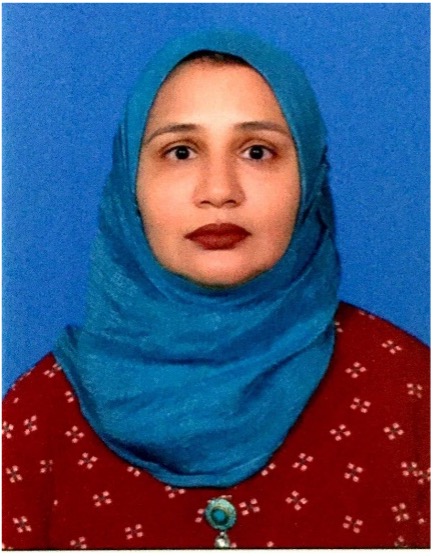
Samina Fatima
Hasnain
Immunization specialist, PHCC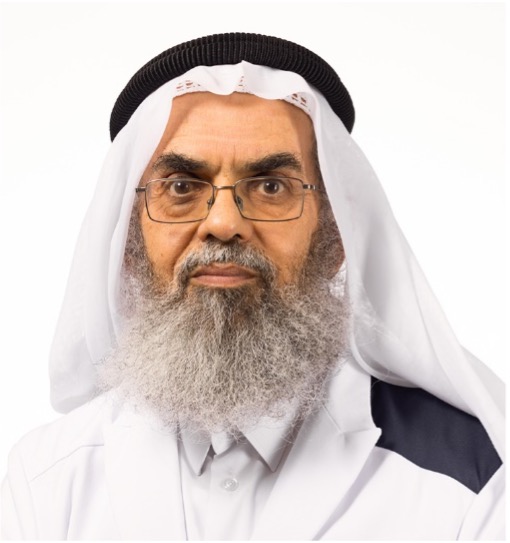
Mohammed
Janahi
Division Chief Pediatric infectious diseases, Sidra / Chair of National Certification Committee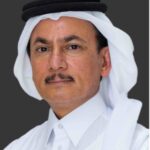
Abdullatif
Al Khal
Hamad Medical Corporation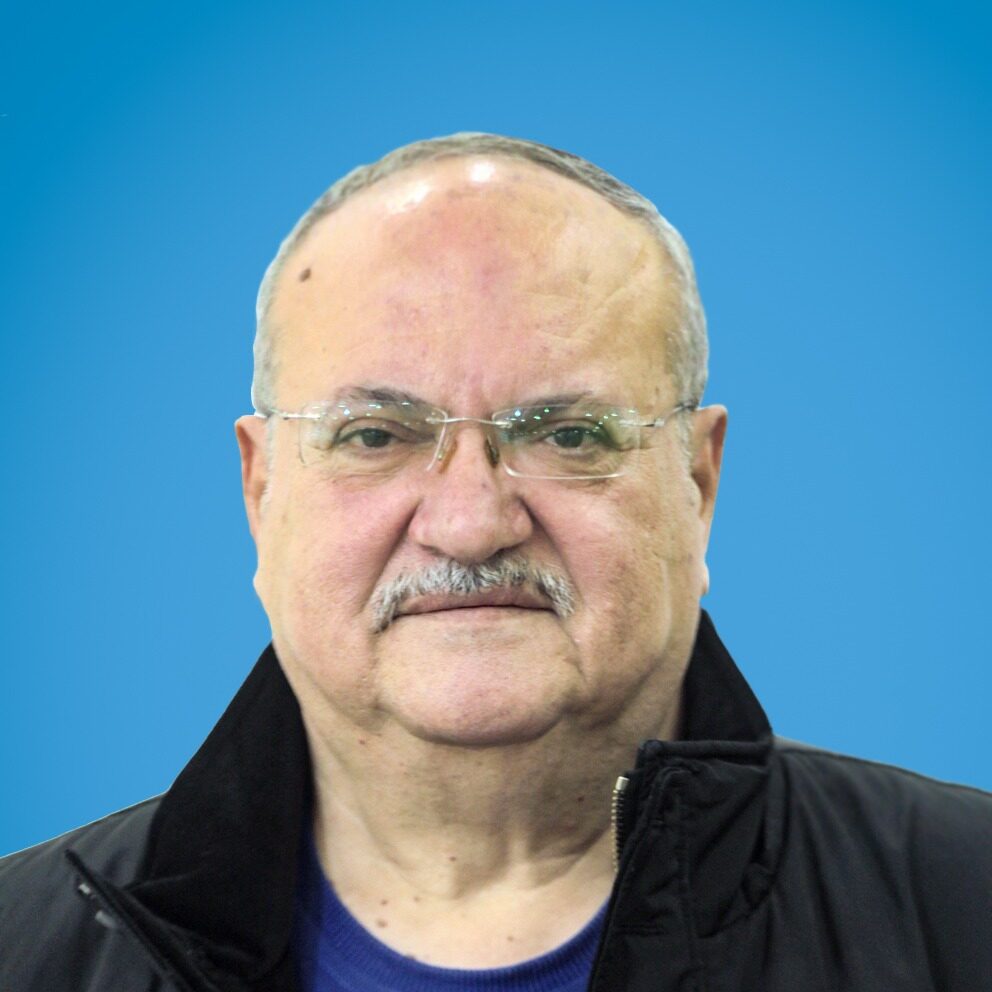
Younis
Awadallah
UNICEF RetireeSamina Fatima Hasnain Hasan Syed
Immunization specialist, PHCC
Qatar
Dr. Samina Hasnain is a distinguished public health physician with over a decade of experience in communicable disease control, immunization strategy, and health education. She holds an MBBS degree from Karachi University and a Master’s in Public Health from the London School of Hygiene and Tropical Medicine, one of the world’s leading institutions in global health.
Dr. Hasnain began her medical career at Hamad Medical Corporation in Qatar, where she worked as an internal medicine physician. In 2012, she transitioned into public health, joining the Ministry of Public Health in Qatar. Over the next nine years, she played a pivotal role in the Communicable Diseases Control Department, where she led national programs focused on the control and elimination of measles, rubella, congenital rubella syndrome, polio, and meningitis. Her leadership extended to the COVID-19 pandemic response, where she served as a lead in Qatar’s contact tracing team, helping to coordinate and implement critical containment strategies.
Her work has been recognized internationally through her participation in numerous missions and trainings organized by the World Health Organization (WHO), contributing to global efforts in disease surveillance, outbreak response, and immunization policy.
Currently, Dr. Hasnain serves as an Immunization Specialist at the Primary Health Care Corporation in Qatar, where she continues to advance national immunization initiatives and strengthen public health infrastructure. Her role involves strategic planning, program implementation, and cross-sector collaboration to improve vaccine coverage and disease prevention.
In addition to her clinical and programmatic expertise, Dr. Hasnain is a passionate educator. She has extensive teaching experience with healthcare professionals and students across various institutions. She currently teaches multiple immunization trainings at PHCC as well as distance learning courses in Public Health, Health Promotion, and Infectious Diseases, helping to shape the next generation of public health leaders.
Dr. Hasnain’s career reflects a deep commitment to health equity, education, and global collaboration. Her contributions continue to impact public health policy and practice both within Qatar and beyond.
Dr. Hasnain began her medical career at Hamad Medical Corporation in Qatar, where she worked as an internal medicine physician. In 2012, she transitioned into public health, joining the Ministry of Public Health in Qatar. Over the next nine years, she played a pivotal role in the Communicable Diseases Control Department, where she led national programs focused on the control and elimination of measles, rubella, congenital rubella syndrome, polio, and meningitis. Her leadership extended to the COVID-19 pandemic response, where she served as a lead in Qatar’s contact tracing team, helping to coordinate and implement critical containment strategies.
Her work has been recognized internationally through her participation in numerous missions and trainings organized by the World Health Organization (WHO), contributing to global efforts in disease surveillance, outbreak response, and immunization policy.
Currently, Dr. Hasnain serves as an Immunization Specialist at the Primary Health Care Corporation in Qatar, where she continues to advance national immunization initiatives and strengthen public health infrastructure. Her role involves strategic planning, program implementation, and cross-sector collaboration to improve vaccine coverage and disease prevention.
In addition to her clinical and programmatic expertise, Dr. Hasnain is a passionate educator. She has extensive teaching experience with healthcare professionals and students across various institutions. She currently teaches multiple immunization trainings at PHCC as well as distance learning courses in Public Health, Health Promotion, and Infectious Diseases, helping to shape the next generation of public health leaders.
Dr. Hasnain’s career reflects a deep commitment to health equity, education, and global collaboration. Her contributions continue to impact public health policy and practice both within Qatar and beyond.
Mohammed Janahi
Division Chief Pediatric infectious diseases, Sidra / Chair of National Certification Committee
Qatar
King Faisal University of Saudi Arabia and his residency training in 1993-1996 at St. Luke’s and Roosevelt hospital in New York, USA, then fellowship training in Pediatric Infectious Diseases at Robert Wood Johnson University Hospital in New Jersey, USA from 1996-1999. In 1997, Dr. Janahi obtained his American Board of Pediatrics.
He was the Chairman of the Department of Pediatrics at Hamad Medical Corporation since November 2005; Head of the Pediatric Infectious Diseases since 1999; Vice Chair of Pediatrics at Sidra Medicine and Medical Director of Outpatient Clinics. He has been treating pediatric patients with various infectious diseases for the past 19 years. In addition, Dr. Janahi is an appointed faculty member of Weill-Cornell Medical College in Qatar as Associate Professor of Clinical Pediatrics.
He was the Chairman of the Department of Pediatrics at Hamad Medical Corporation since November 2005; Head of the Pediatric Infectious Diseases since 1999; Vice Chair of Pediatrics at Sidra Medicine and Medical Director of Outpatient Clinics. He has been treating pediatric patients with various infectious diseases for the past 19 years. In addition, Dr. Janahi is an appointed faculty member of Weill-Cornell Medical College in Qatar as Associate Professor of Clinical Pediatrics.
Abdullatif Al Khal
Hamad Medical Corporation
Qatar
Dr. Abdullatif Mohammed Al-Khal earned his MBBCh from the Royal College of Surgeons in Ireland in 1989. He undertook his internship at Hamad Medical Corporation (HMC) in the State of Qatar, and in 1991, joined the Internal Medicine Residency Training Program at the University of Connecticut School of Medicine, CT, USA, followed by completion of a 2-year fellowship in Infectious Diseases at Hartford Hospital. He was awarded the Diploma of the American Board of Infectious Diseases in 1996. He was recertified in Infectious Diseases in 2013.
Dr. Al-Khal holds several clinical positions, chairs a variety of committees, and has led number of strategic projects at HMC. Between 1999-2001, he served as the Chair of Family Medicine and as the Chair of Department of Medicine from 2001 until 2012. Dr. Al-Khal has been the Head of Infectious Diseases Division since 1998 and the Lead of the Communicable Disease Centre and is also the National TB Program Manager and the Director of the Clinical AIDS Program. As Deputy Chief Medical Officer and the Director of Medical Education/DIO, he has notably led HMC’s achievement of ACGME-I accreditation, and in 2018 received ACGME’s Physician International Award, to recognize his outstanding contributions to improving the quality of graduate medical education in Qatar. Dr. Al-Khal also has an advisory role to several public health programs under the umbrella of Qatar’s Ministry of Public Health.
Dr. Al-Khal currently holds an appointment as Adjunct Professor of Clinical Medicine at Weill Cornell Medicine Qatar (WCM-Q) and as Clinical Professor of Medicine at Qatar University College of Medicine (QU CMED) as well as serves as QU CMED’s Director of the Clinical Affairs Department.
He remains active in research and publishes regularly in the fields of Internal Medicine, Pharmacology, Infectious Diseases and Medical Education.
Dr. Al-Khal holds several clinical positions, chairs a variety of committees, and has led number of strategic projects at HMC. Between 1999-2001, he served as the Chair of Family Medicine and as the Chair of Department of Medicine from 2001 until 2012. Dr. Al-Khal has been the Head of Infectious Diseases Division since 1998 and the Lead of the Communicable Disease Centre and is also the National TB Program Manager and the Director of the Clinical AIDS Program. As Deputy Chief Medical Officer and the Director of Medical Education/DIO, he has notably led HMC’s achievement of ACGME-I accreditation, and in 2018 received ACGME’s Physician International Award, to recognize his outstanding contributions to improving the quality of graduate medical education in Qatar. Dr. Al-Khal also has an advisory role to several public health programs under the umbrella of Qatar’s Ministry of Public Health.
Dr. Al-Khal currently holds an appointment as Adjunct Professor of Clinical Medicine at Weill Cornell Medicine Qatar (WCM-Q) and as Clinical Professor of Medicine at Qatar University College of Medicine (QU CMED) as well as serves as QU CMED’s Director of the Clinical Affairs Department.
He remains active in research and publishes regularly in the fields of Internal Medicine, Pharmacology, Infectious Diseases and Medical Education.
Younis R. Awadallah
UNICEF Retiree
Palestine
A qualified public health professional with more than 40 years’ experience in Maternal, child health and early childhood development and Expanded Program of Immunization (EPI) including Vaccination and Cold management. Has experience in managing maternal and child health projects, including integrated management of childhood illness (IMCI) and primary health care PHC capacity development and resource utilization. In addition, has long experience in working with the Ministry of Health, Ministry of Education/Higher Education and other national and international organizations in issues including outbreaks, emergency situations and early recovery projects.
Being a national coordinator for the IMCI strategies and director of child health departments in the MoH from 2001-2010 and as a Health Specialist (Health and Nutrition officer) at UNICEF from 2010 to November 2021 opened a door to connect networks and be familiar with international community policies and requirements. Has good connections with international community including WHO, UNCIEF, UNFPA, World Bank, European Commission, World Vision International, MAP and USAID’s projects and others, this helped to build up extensive experience in management, monitoring and evaluation, institutional development, community development, team management, leadership and donor relations.
Being a national coordinator for the IMCI strategies and director of child health departments in the MoH from 2001-2010 and as a Health Specialist (Health and Nutrition officer) at UNICEF from 2010 to November 2021 opened a door to connect networks and be familiar with international community policies and requirements. Has good connections with international community including WHO, UNCIEF, UNFPA, World Bank, European Commission, World Vision International, MAP and USAID’s projects and others, this helped to build up extensive experience in management, monitoring and evaluation, institutional development, community development, team management, leadership and donor relations.
Emily Brandt
Searcher
Ireland
EN
Donec rhoncus ultrices nibh, id faucibus neque sollicitudin ac. Aliquam cursus arcu eget est blandit mollis. Duis commodo eget augue id molestie. Curabitur pretium imperdiet libero, non congue massa convallis vitae. In sollicitudin tincidunt sapien.
Emily Brandt
Searcher
Ireland
EN
Donec rhoncus ultrices nibh, id faucibus neque sollicitudin ac. Aliquam cursus arcu eget est blandit mollis. Duis commodo eget augue id molestie. Curabitur pretium imperdiet libero, non congue massa convallis vitae. In sollicitudin tincidunt sapien.
Emily Brandt
Searcher
Ireland
EN
Donec rhoncus ultrices nibh, id faucibus neque sollicitudin ac. Aliquam cursus arcu eget est blandit mollis. Duis commodo eget augue id molestie. Curabitur pretium imperdiet libero, non congue massa convallis vitae. In sollicitudin tincidunt sapien.
Emily Brandt
Searcher
Ireland
EN
Donec rhoncus ultrices nibh, id faucibus neque sollicitudin ac. Aliquam cursus arcu eget est blandit mollis. Duis commodo eget augue id molestie. Curabitur pretium imperdiet libero, non congue massa convallis vitae. In sollicitudin tincidunt sapien.
